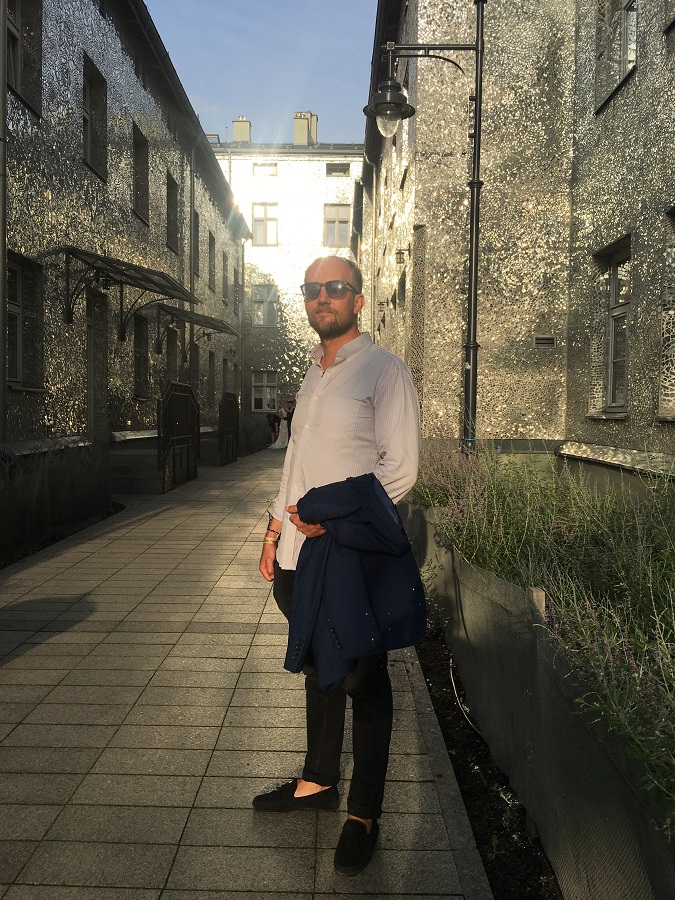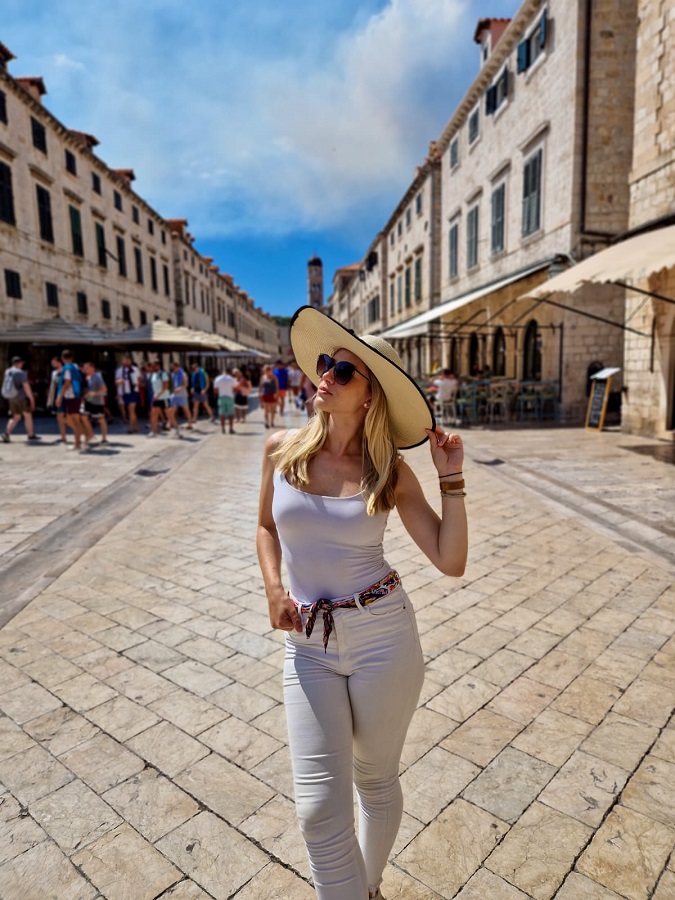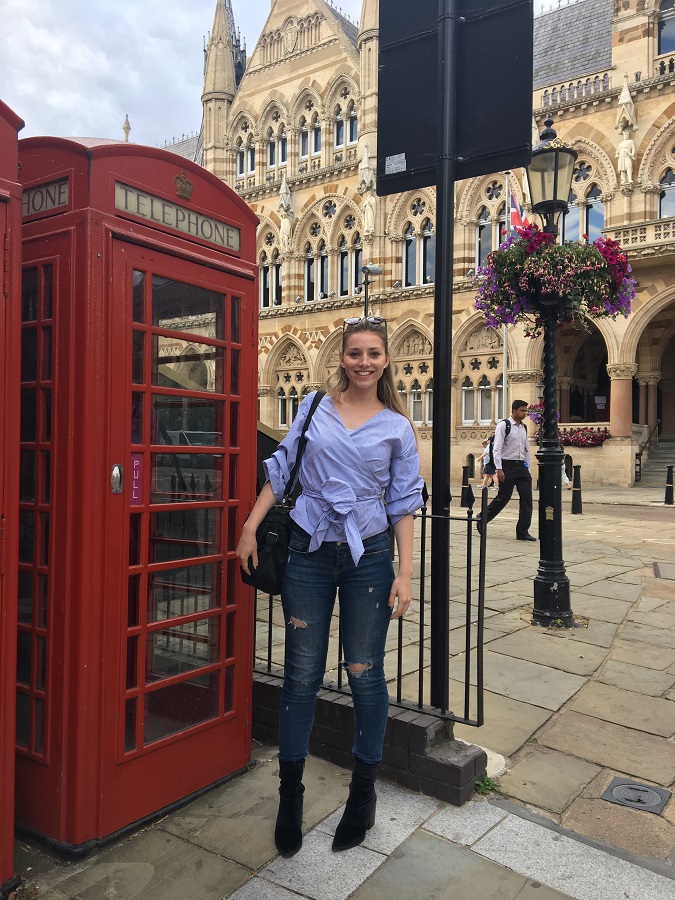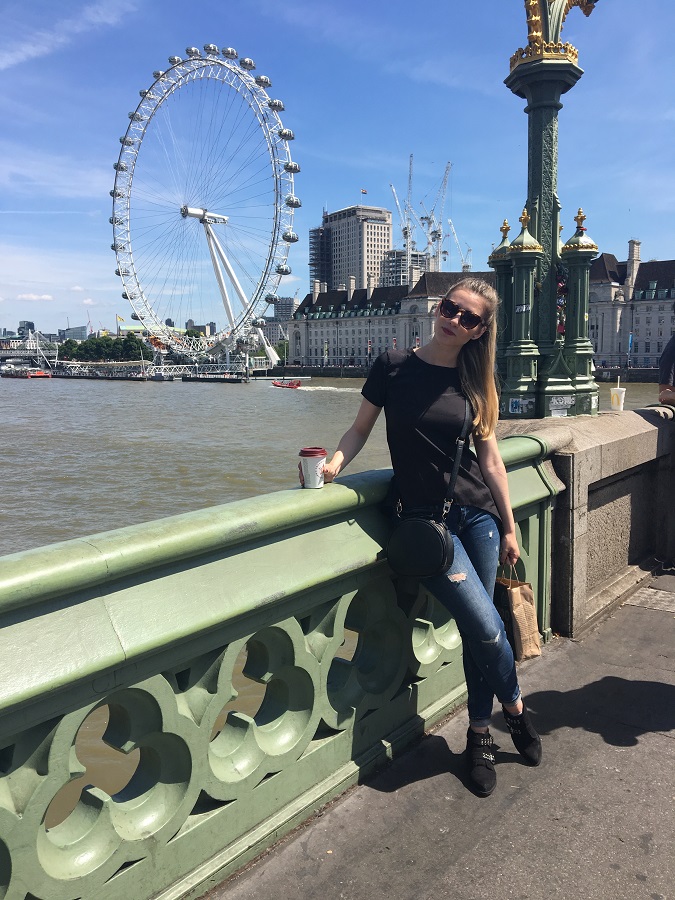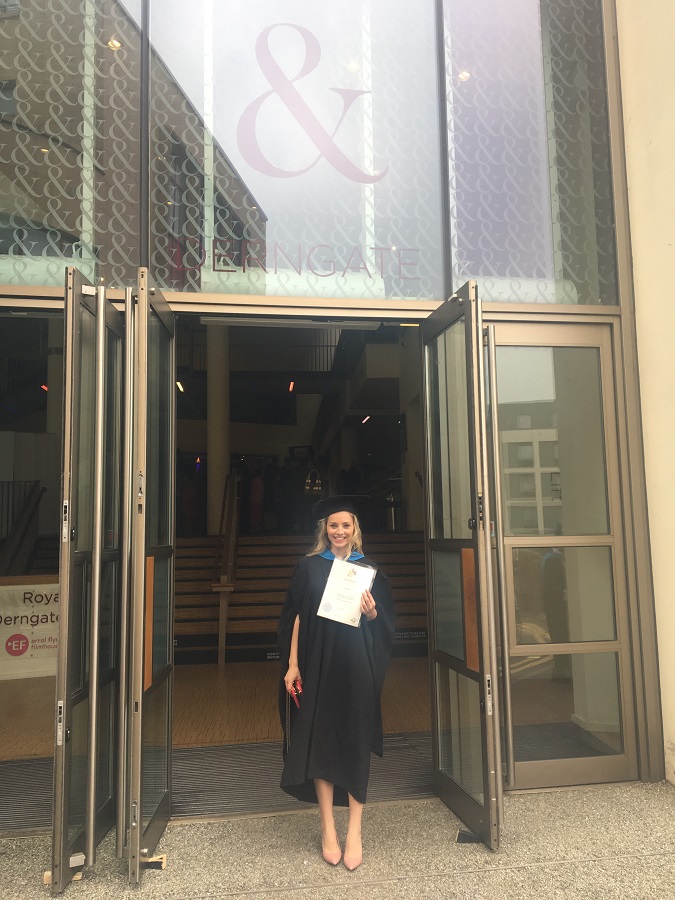Croatian Returnee Reflections: Danijela Andric Casson, from Dubai to Istria
April 21, 2023 - Whisper it quietly, but more and more people are relocating to Croatia from the diaspora. In a new TCN series, we meet them to find out how they are faring and what advice they have for others thinking of making the switch. Next up is Danijela Andric Casson, who moved from Dubai to Istria.
1. You made the switch to Croatia. Tell us a little about the decision process and how long it took for you to get on the plane?
To be honest, there was no plan behind it, it just happened... My Cavalier King Charles Spaniel named Kelly had developed severe asthma, and she was suffering from the dusty, sandy climate in Dubai, where we have been living since 2013. My vet suggested changing the climate for Kelly for a few days or weeks so that her lungs could recover.
No sooner said than done... we left Dubai on 20 March 2020 with one of the last possible planes to spend a few days in our holiday home in Croatia that we bought in the Autumn of 2019. A few days turned into months as all of Europe was in lockdown due to Covid 19. We enjoyed the contrast in the environment and started loving the peace, the freshness, the nature, the scents, and the freedom in Istria. I’m living now 9 months a year in Istria and 3 in Dubai which is a nice escape from the European winter! My husband travels extensively for business and so is able to use Istria as a base for his European travel while maintaining his office in Dubai for that part of the world.

2. What did your family and community back home think of your decision at the time?
No one could believe that I prefer the simple country life to my privileged and jet-set life in Dubai, least of all my mother. You need to know that, until this move, I haven't lived a day in Croatia – Yes, I've been on annual holidays over the years and we had a family home there. I was born and raised in Germany, so it was hard for my family to imagine that I was the only one in the family who moved back to my roots.
My friends from Dubai came to visit me to see with their own eyes and experience why I give rubber boots priority over high heels. Everyone, without exception, had recognised the renewed spark and happiness in me since I have been in the powerful nature & environment of Istria.
Family and friends visit us often during the year visit me regularly and enjoy the weather, nature, sea and food & wine as they explore with us the wider area.
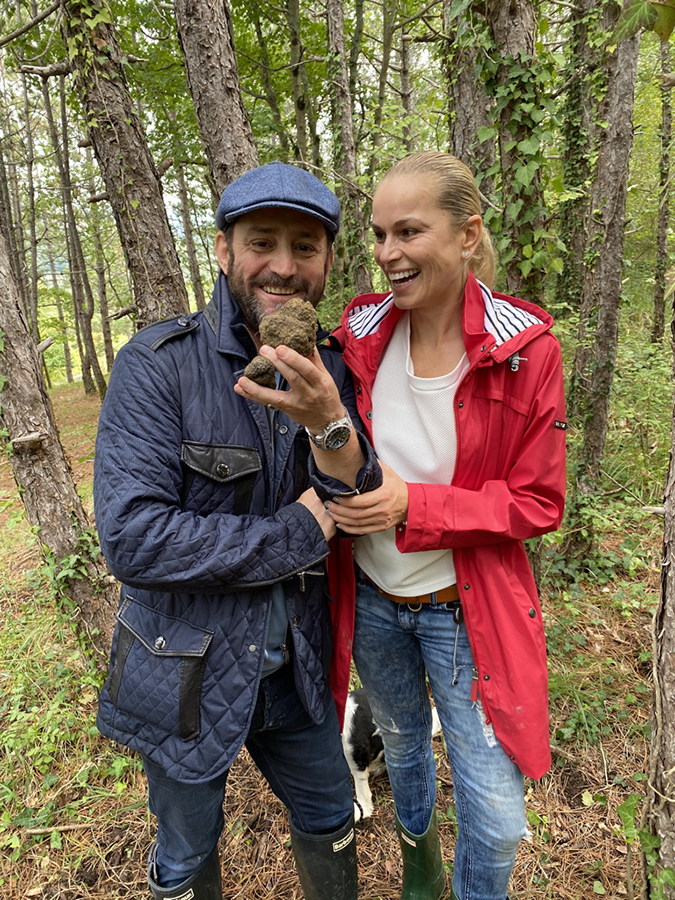
3. Where did you get your information about the realities of Croatia prior to coming?
We kind of discovered and learned as we went, relied on friends as well as great resources such as TCN and Expats Istria on Facebook. Being a native Croatian speaker of course helps tremendously.
4. What were you most nervous about making the switch? What was your biggest fear, and how was the reality of what you found?
As I slipped into it unintentionally, I honestly wasn't afraid or nervous of anything because, as I said, I only intended to stay for a few weeks. A few weeks turned into months because of the severe worldwide travel restrictions due to Covid. I'm slowly feeling my way back into everyday life - still with the thought that in a few months I'll be going back to Dubai... Now it's time to get a foothold here as well as possible and slowly come to terms with the peculiarities of the Peninsula. Research has to be done like “where is a good dry-cleaning, where are the good winegrowers, where can you eat local and good food“, questions of everyday life.
When the travel restrictions for Dubai eased in the autumn of 2020, we flew back to the UAE where I didn't stay long! I knew then that I had to go back to Istria, as Dubai no longer gave me that feeling of being at home nor comfortable. In Feb. 2021, I went back to Croatia and continued where I had left off.... I was able to continue my job online, so I didn't suffer any restrictions here.
Many things are different here compared to Dubai, I don't say better or worse, just different, but I can deal with it. Dubai, for example, is a very service-oriented country. There is nothing that is not delivered to your home whether it is things or services, could be massages, pedicures, hairdressers, chefs, blood tests, everything! Istria presents a simpler life but a rich and rewarding one on so many levels.
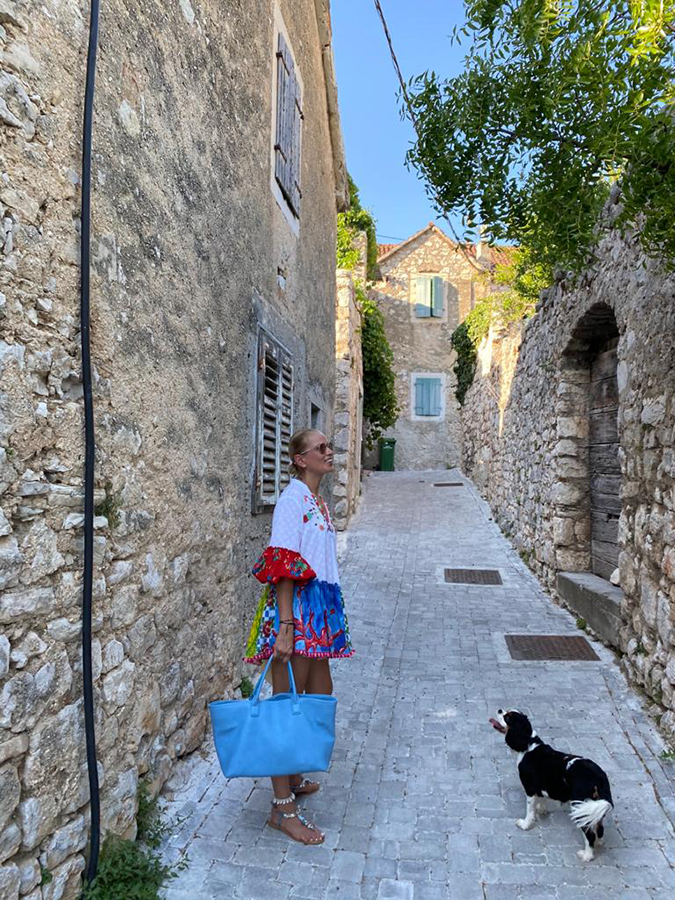
5. Think back to the time before you arrived. What were your perceptions about Croatia and how were they different from the reality you encountered?
As mentioned, I had all through my growing up years visited Croatia, keeping in touch with my roots and then thru an earlier role in travel got to travel and see most of the Country over several years and so have certainly been familiar and so, for me, the gap was not too dramatic.
6. You are still here, so obviously the pros outweigh the cons. Tell us about some of the things that you love about being in Croatia, as well as some of the things you don't like.
I probably hadn’t anticipated the kindness or help of so many people that helped us settle in, and it was a joy to rediscover the food and wonderful wines of the region. On the flip side the bureaucracy gets frustrating at times, lack of consistent supplies in the shops and, coming from Dubai I do miss truly the variety and tasted of international food, especially Asian.
We bought our house, extensively renovated & enlarged it as well as buying large plots of land and dealing with the world of lawyers, land agents, Government departments contractors, craft workers and all the trades has been crazy at times, I could write a book. The end justifies the means though, as we love the home and environment, we have created, our little piece of heaven!
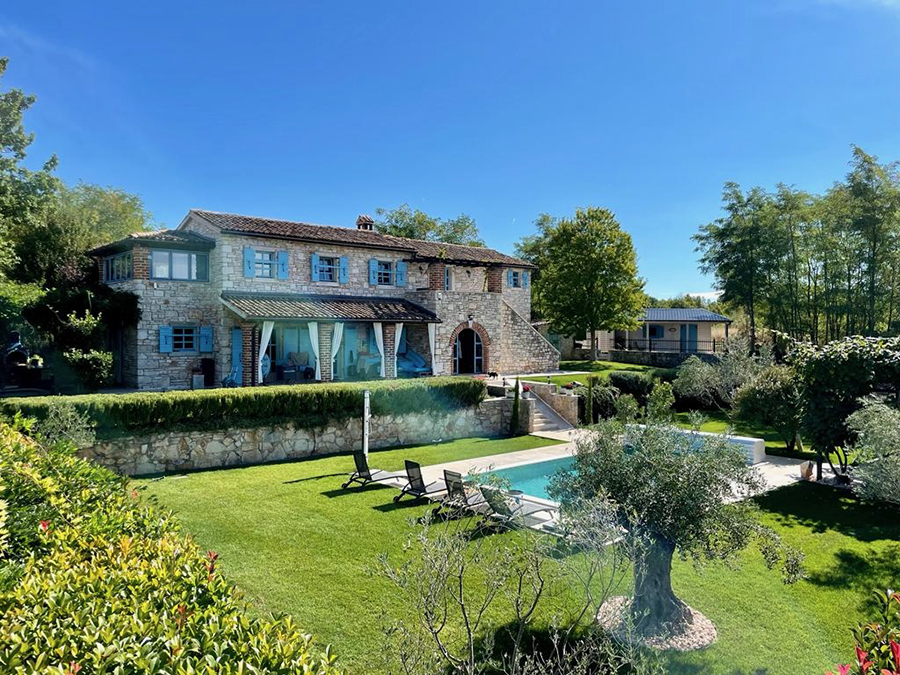
7. What advice do you have for others thinking about making the move from the diaspora?
Well, firstly, it seems the days of cheap real estate and land has largely disappeared over the past few years, as Croatia caught up with many areas of Europe. And with the Euro now in play, prices are less cheap than they had historically been. Speaking the language is pretty essential to get things done, especially with Government and locals. Healthcare is quite good on a basic level, but for more serious issues you would have to be prepared to go to Germany, Switzerland or UK.
As a professional Holistic Practitioner I’m playing my part in creating dedicated wellness retreats in Istria. The first of these will be here in September and you can find full details in this link:
Furthermore, I’m going to open my holistic practice here in Mofardini in July 1st , where we are offering Kinesiology-Session, Counselling, Nutrition & Supplement support according to your blood-group-type and parts of Traditional Chines Medicine. The treatments can be conducted in English, German and Croatian and cover a wide range of protocols. More details you will find on my homepage: www.bms-centre.com
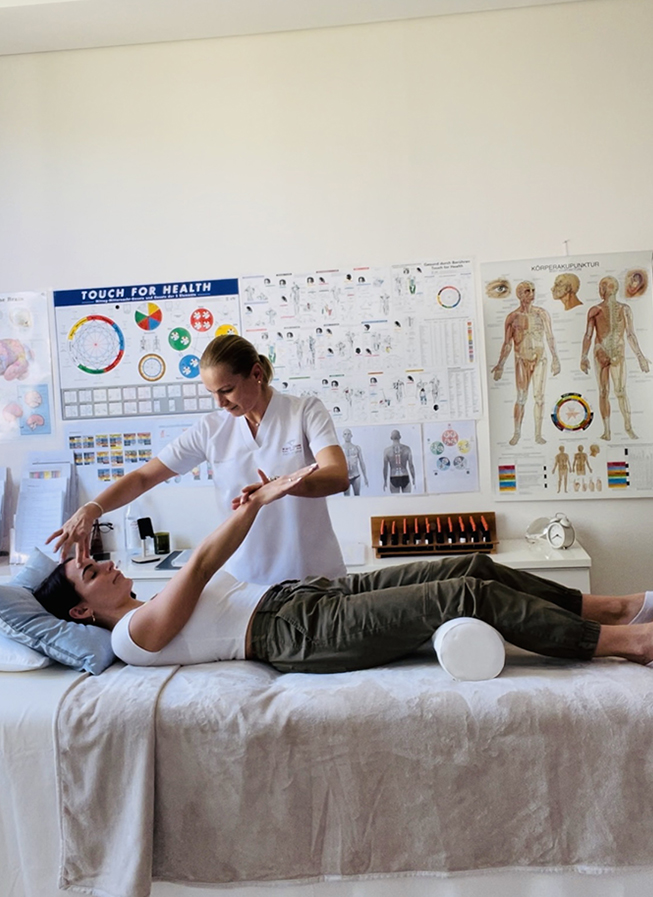
8. How do you think Croatia can better assist those who are looking to return to the Homeland?
I never really sought nor expected help as it’s a personal decision that I was happy to make, and so then made sure to inform myself as I went along. I´m sure Paul´s new book will be of practical help to many, both a great read and practical resource!
****
Thanks, Danijela, and good luck with the retreats!
You can follow more stories in the Croatian Returnee Reflections series in our dedicated TCN section.
Would you like your returnee story - positive or negative - to be featured in this series? Contact This email address is being protected from spambots. You need JavaScript enabled to view it. Subject Returnee.
****
What's it like living in Croatia, and where can you get the best survival tips? TCN CEO Paul Bradbury and TCN Editor Lauren Simmonds have teamed up to publish Croatia, a Survival Kit for Foreigners.
Follow Paul Bradbury on LinkedIn.

Croatian Returnee Reflections: Dejan Cuk, from Salt Lake City to Split
March 22, 2023 - Whisper it quietly, but more and more people are relocating to Croatia from the diaspora. In a new TCN series, we meet them to find out how they are faring and what advice they have for others thinking of making the switch. Next up is Dejan Cuk, who moved from Salt Lake City to Split.
I was born in Gospic, Croatia, in 1991. A great time to be born in ex-Yugoslavia (sarcasm). It was around the heat of the war, and at that time, my family, like many people during that time, were either living with family or moving from place to place in order to survive. At one point, my family also immigrated to Serbia to live with family from my father’s side.
In 1998, my parents decided to move my older brother and me to the states for a chance at a better life. A decision that, when I look back at times, is one that really helped save all of us, as it allowed my brother and me a chance for a better life than the one we would have had we stayed; we lost everything.
I’m a graduate of the University of Utah with two bachelors (Sociology & Business Administration), and I’ve been working in Digital Marketing for 10+ years.
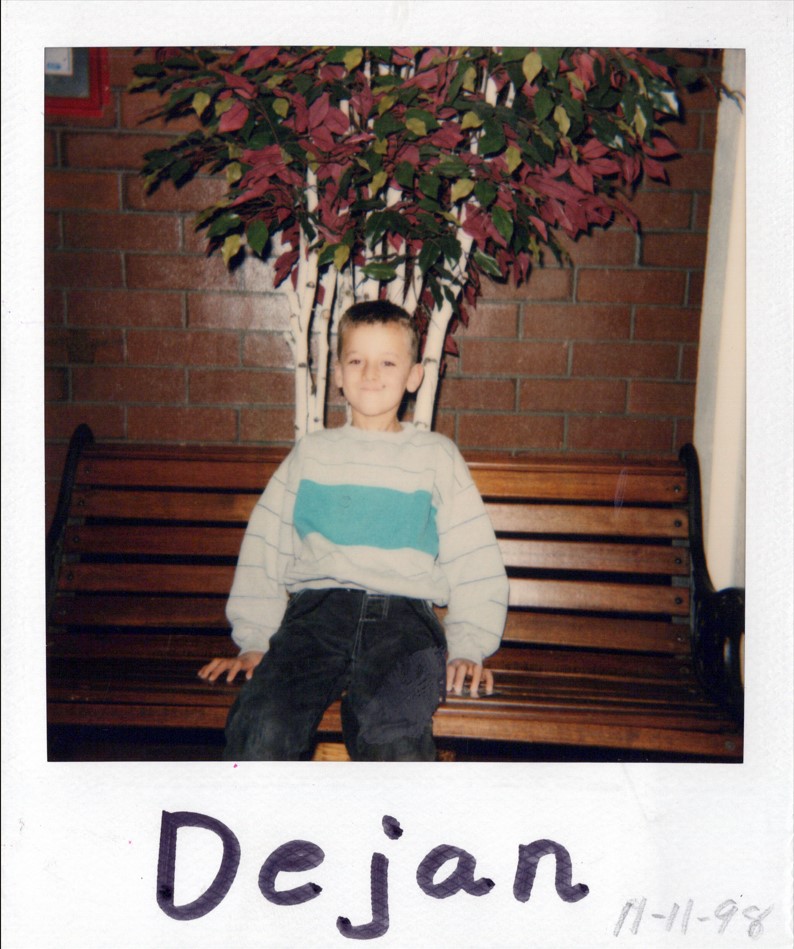
You made the switch to Croatia. Tell us a little about the decision process and how long it took for you to get on the plane?
Flying from Salt Lake City, Utah, to Croatia was expensive for my family, especially during the peak summer months, when we would typically go, so we went every 5-6 years. In 2014, my brother and I went just by ourselves, and that was when we decided we wanted to be back in Croatia for good. One thing is having an idea; it’s a whole different thing planning it.
I was still in college at that time, so my plan was finish that first. Then I told myself I needed a remote friendly job and before coronavirus there were really like 2 choices at the time; digital marketing or to be a programmer, I went with the former because it was more aligned with my studies. Being the planner that I am, that wasn’t enough. I also had to save up some money for those “what if scenarios” so I did that as well. Once I ticked off the boxes, one by one then I made the decision in 2019 to move back for good.
What did your family and community back home think of your decision at the time?
My parents knew about this, and supported the idea. Truth be told, growing up they would keep me and my brother tied to the culture as best they could and that honestly helped me realized how much I did want to go back.
As far as my friends, some were surprised and some were I’m sure envious/happy because there is a large part of our community regardless of where they are from the Balkans, that want to go back but again back to that question and answer from earlier, don’t know how to make it happen.
Where did you get your information about the realities of Croatia prior to coming?
I kept in touch with some family members in Croatia. Also, my parents were like the anchor and co-anchor for me and my brother, giving us news on what happened that day in Croatia. I found it silly and useless when I was younger but as I grew older I realized how important it was and how it helped me stay informed, even when I wasn’t living there.
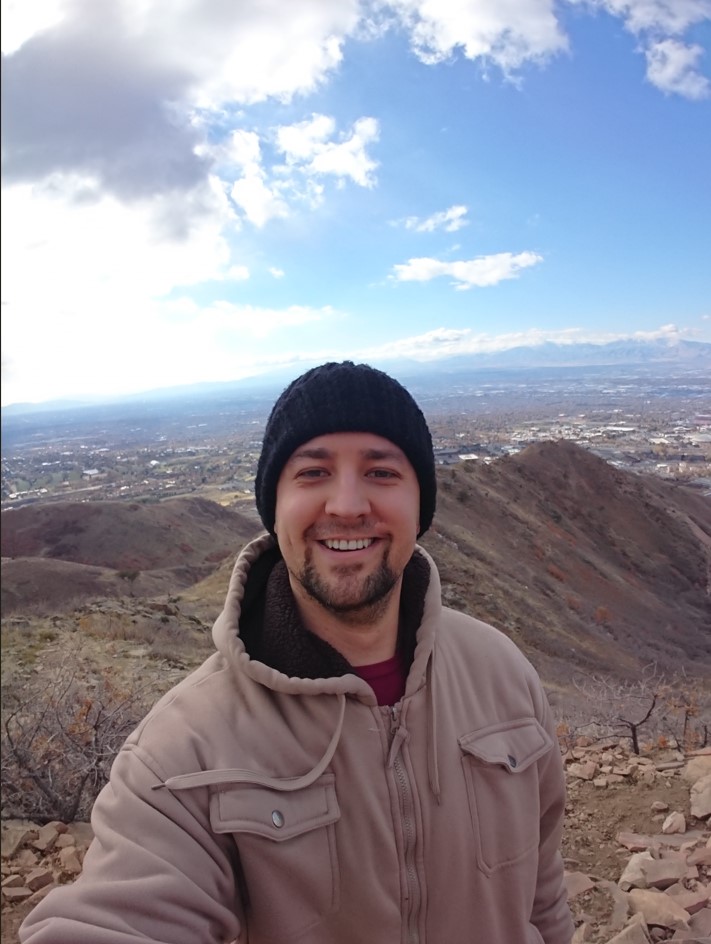
What were you most nervous about making the switch? What was your biggest fear, and how was the reality of what you found?
I think I was a bit shy speaking the language around locals because of my “American” accent, but also because I wasn’t sure how some would react given that my vocabulary was a mix of ex-Yugoslavian i.e., not Croatian specific words.
I quickly got over that because my personality is more “who cares” than anything else but it was in the back of my mind.
My other fear I guess would be the administrative stuff, yes, I know the language but I don’t know the law and how things “worked-worked” if that makes sense. One thing is to live here and be on vacation when all you need to do is order drink and food, but it’s a whole other thing figuring out how to get your health insurance. In the end, I can say it all came out good, because I made an effort to understand it and ask questions. I wasn’t shy to ask questions about whatever I needed to get done.
Think back to the time before you arrived. What were your perceptions about Croatia and how were they different from the reality you encountered?
Being born in Croatia, and parents born there as well, I never had that culture shock that perhaps others might get. I knew what to expect, for the most part. Sure, there were small things like “Oh I have to put my own groceries in the bags” but I realized that as cashier kept ringing items up and they weren’t being put into a bag. #spoiled
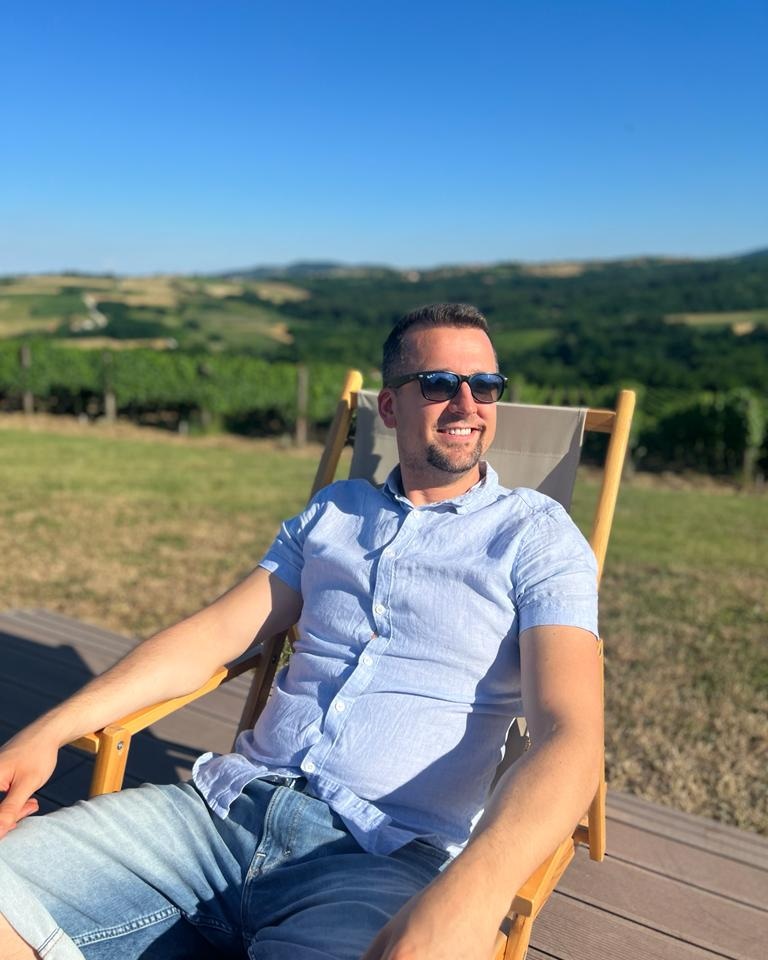
You are still here, so obviously the pros outweigh the cons. Tell us about some of the things that you love about being in Croatia, as well as some of the things you don't like.
I like the slower pace of life in Split, the 2-3 hours of drinking coffee and just chilling and talking about what’s new in one’s life is so refreshing because in the states you don’t have that. If you do go out, its with friends on a Friday/Saturday to get drinks and repeat again, where as in Croatia you can see people throughout the week and I really like that.
While on the topic of friends, I value that people here REALLY do become friends and its not just surface deep as it is in the states. People actually help each other through the darkest times and remain friends for 10+ years, which again is a rarity in the states. I changed so many friends from high school to college, and from college to the work force. It must be nice knowing that you are friends with someone that saw so many phases of you and you of them.
The nature is second to none, and find it breathtaking throughout the country, not just in one region but throughout the country. One thing is pics you find on Google but it’s a whole different thing when your eyes sparkle and you just forget to blink.
I don’t like how some people treat the nature as their trash can, when I see people throw cigarette butts randomly on the beach or on the street, my blood starts boiling. When I first came back to Croatia, I would just be quiet but now I say something. I guess my inner-Balkan is waking up.
What advice do you have for others thinking about making the move from the diaspora?
I think like any place, you have to feel home and if you are of Croatian descent that is perhaps an easier path than those that have no connection to the country, but again its not impossible.
For the diaspora, I say this. Do you think you would be happier in Croatia, if so then make it happen. It doesn’t have to be one of those spurs of the moments that you go online to buy your tickets right now, rather think about. How will you pay for bills, how will you get income, will it be enough, etc. Sure, you don’t need to know the answers to everything but plan it out and if its looking good then you can decide to come here.
I say this because, moving from one country to another isn’t the easiest and its always much easier if you can immerse yourself in the country, without having to worry about financials.

How do you think Croatia can better assist those who are looking to return to the Homeland?
I think the youth is the future, but we can’t lose our youth to other countries because they don’t see hope in their own country. This doesn’t just apply to the diaspora but also to the ones currently in this country right now. Mate Rimac is an example of someone from Croatia creating a world-class level company, and without having to leave Croatia. Obviously not everyone will have this happen but imagine if the Mate’s of Croatia take their brains to Germany or Austria or anywhere else, because they don’t see potential in their own homeland.
Nepotism must be wiped out. Doors must be open to those with ambition and not closed because they aren’t with XYZ political party or because they don’t have any friends/relatives in XYZ company.
Where can people reach you?
On LinkedIn
https://www.linkedin.com/in/cukdejan/
On Facebook
https://www.facebook.com/dejaninutah
And on Instagram
https://www.instagram.com/dcuk91/
****
Thanks, Dejan!
You can follow more stories in the Croatian Returnee Reflections series in our dedicated TCN section.
Would you like your returnee story - positive or negative - to be featured in this series? Contact This email address is being protected from spambots. You need JavaScript enabled to view it. Subject Returnee.
****
What's it like living in Croatia, and where can you get the best survival tips? TCN CEO Paul Bradbury and TCN Editor Lauren Simmonds have teamed up to publish Croatia, a Survival Kit for Foreigners.
Follow Paul Bradbury on LinkedIn.

Croatian Returnee Stories: Stipe Barac, from Denmark to Rijeka
March 7, 2023 - Whisper it quietly, but more and more people are relocating to Croatia from the diaspora. In a new TCN series, we meet them to find out how they are faring and what advice they have for others thinking of making the switch. Next up is Stipe Barac, who moved back from Denmark to Rijeka.
CHANGED THE COUNTRY OF HYGGE WITH CROATIA
After 3.5 years spent in the land of hygge, which states for the Danish philosophy of enjoyment, this is Stipe’s story of why he has exchanged Denmark with Croatia.
Born and raised in Rijeka, after living in beautiful Zagreb, Stipe moved to Denmark to study. He got enrolled in branding and marketing studies at one of the most prestigious Scandinavian design schools in the lifestyle sector.
But why he came back and how he sees Croatia, he expressed vividly in this interview. Feel free to read and share your thoughts.
1. You made the switch to Croatia. Tell us a little about the decision process and how long it took for you to get on the plane?
Life in Denmark is decent, and I feel blessed that I had an opportunity to study abroad, and this study experience has definitely enriched my life profoundly. I’ve studied in an international environment and met people from all over Europe and the world. According to the Associate Professor and culturologist Anatolie Cantir, Denmark is the happiest country in the world with the unhappiest expats.
From the very beginning, I intuitively felt that Denmark would only be a stopover in my life and that I would not settle my life there. I realized that I see myself in Croatia and that I would like to bring at least a part of what I learned in Denmark to Croatia. I think that’s the right path for me at this moment.
I see enormous potential in Croatia, and I believe that it is the task of us young people, to change this country for the better and contribute to its development. If everyone leaves and moves to the West, who will develop Croatia?
Since Croats are among the tallest men in the world, try to find me in the photo.
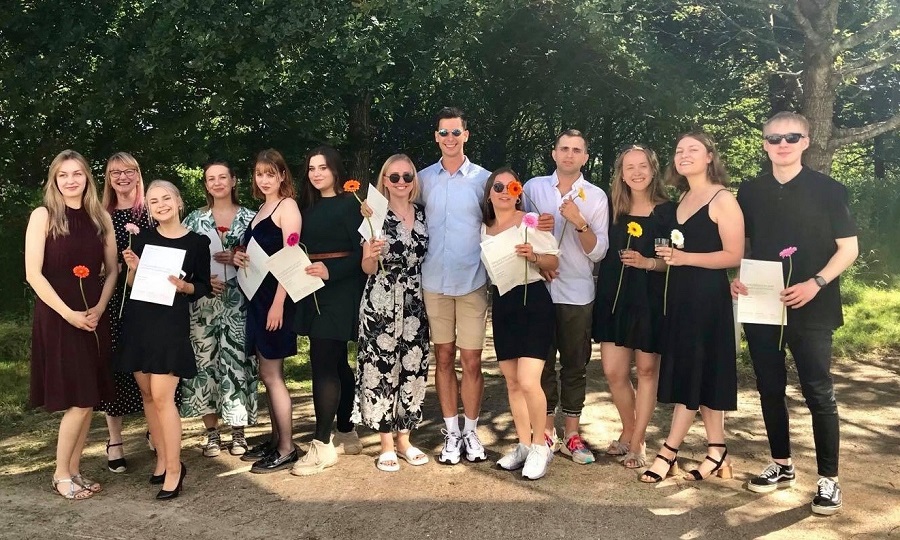
Photo: Graduation celebration with colleagues from Poland, Slovakia, Germany, Hungary, Canada, Iceland and the Netherlands
If you thought I was the one in the middle, you're right! True tall Croat!
2. What did your family and community back home think of your decision at the time?
My family has always been supportive of most of my decisions, so they supported my return to Croatia.
On the other hand, my grandparents spent their entire work life in Germany, and they clearly suggested that I might consider returning back home. They experienced what it is like to feel like a stranger in a foreign land. I agree with that.
Some of my friends had a divided opinion, they didn't really understand why would I return, although they felt contented that I would return back. Some of them live in the belief that the grass is greener somewhere else. But, is it really? I think the grass is green in Croatia.
I understand that economic conditions might be better somewhere else, but not necessarily, because I believe that Croatia also has a lot of potential that is waiting to be developed. It is a country of undiscovered opportunities.
For instance, what I’ve learned in Denmark is that the Danes are resourceful, assertive, and know how to use their potential. In terms of energy, the Danes are leaders in green energy, so you'll find windmills in almost every village. I like their simple approach to life and business. They saw that the wind was constantly there. So, they learned how to make windmills and install them all over Denmark. Now, they sell windmills all over the world. Even the Danish government has decided to triple the number of windmills in Denmark in the coming years. Not doubling, but tripling! Typically Danish - extreme, ambitious.
How can Croatia do something similar, but something that suits our needs and our circumstances? On the Croatian coast, the number of hours of sunshine is high, and this could be our enormous source of energy, literally every hamlet should have a mini solar power plant. Croatia could triple the number of solar power plants and show its ambition! Croatia, please, make bold moves!

Photo: Windmills in every village in Denmark
3. Where did you get your information about the realities of Croatia prior to coming?
I often read the experiences of other people who moved to Croatia, mostly the experiences of returnees. Through LinkedIn, I was inspired by people who succeeded in Croatia, and they encouraged me that it is possible to succeed in Croatia. I’ve learned that it is not necessary to live abroad to live a prosperous and abundant life. I strongly believe it is possible in Croatia too! And no one can dissuade me from that!
4. What were you most nervous about making the switch? What was your biggest fear, and how was the reality of what you found?
I was most afraid of the mindset and the system that rules here in Croatia. I would like it to change for the better, for people to be more open and optimistic, nicer and kinder to everyone, to develop their talents and not depend so much on the opinion of others.
I believe that young people are brave, that they want to make bold moves for Croatia. I like how more and more people are getting involved in entrepreneurship and want to contribute to the creation of modern Croatia. LOVE IT!
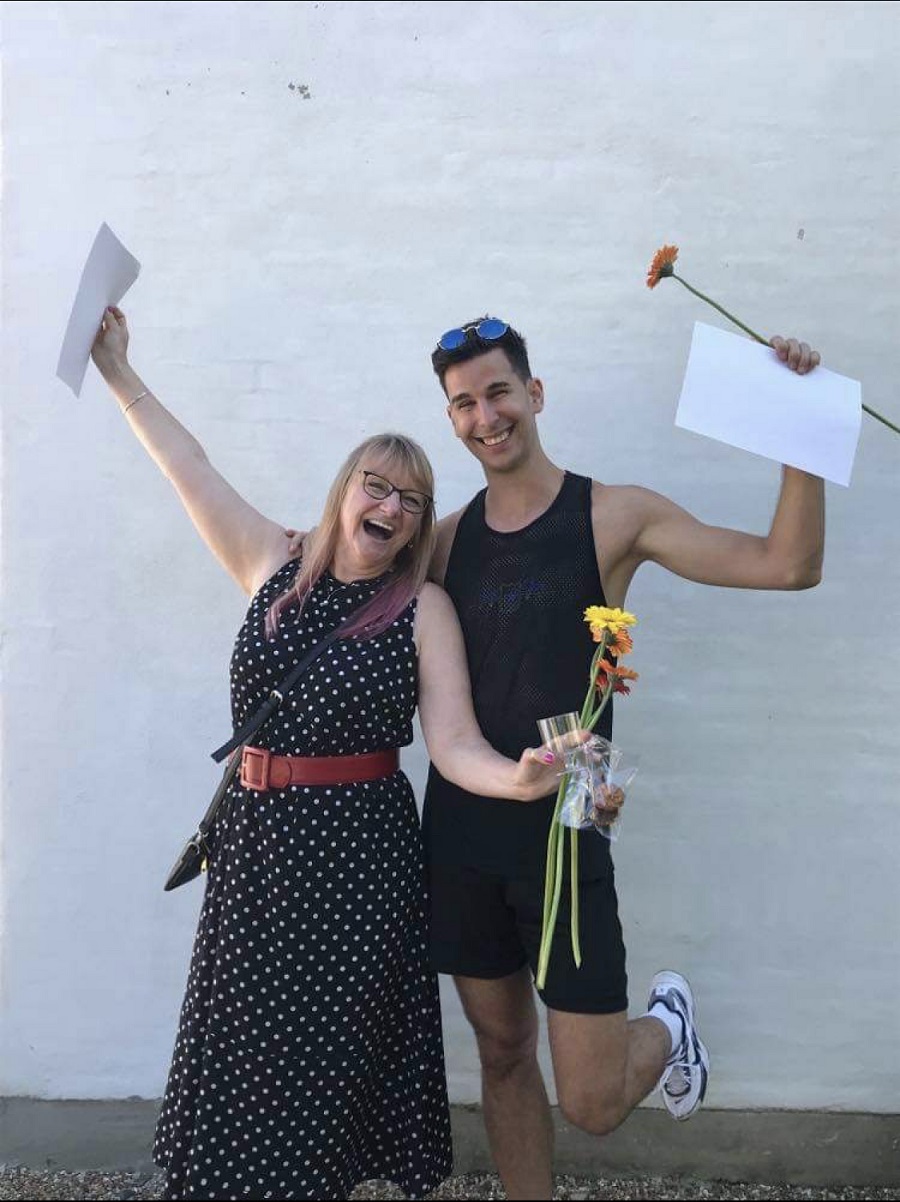
Photo: Stipe with his colleague Ana from Canada
5. Think back to the time before you arrived. What were your perceptions about Croatia and how were they different from the reality you encountered?
I spent the summer holidays of 2022 in Croatia, and the more time I spent here, the more I was sure that I wanted to move back, and it was only a question of the day when I would move. In September 2022, I moved completely.
Before I came back, I had a deep conviction that Croatia is a country of untapped potential. That it is a country where many things can be better, and I want to contribute to that development. I had this attitude before my return, and I still have this attitude. I seriously plan to make my contribution in the field that interests me, which is sustainable design and business.
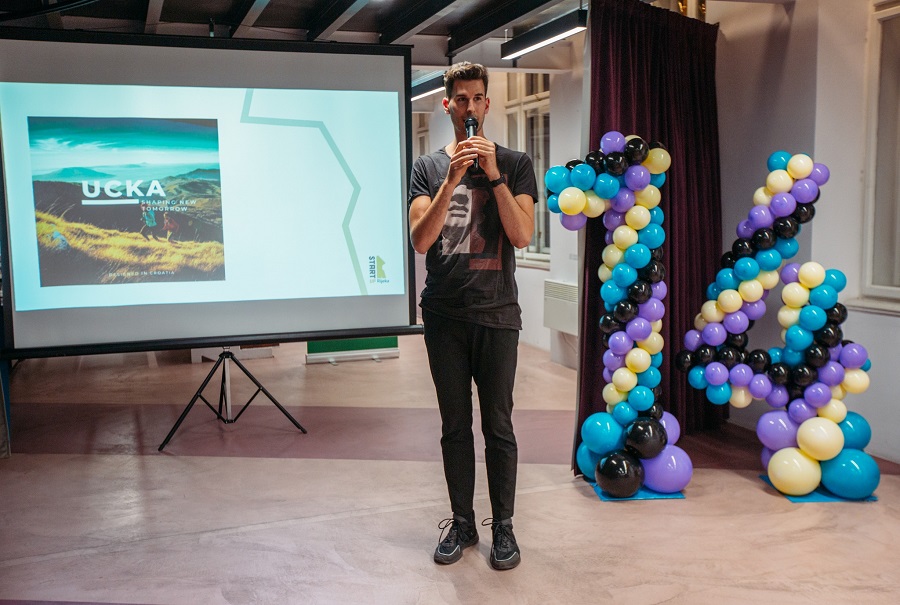
Fotografija: Predstavljanje brenda UCKA
6. You are still here, so obviously the pros outweigh the cons. Tell us about some of the things that you love about being in Croatia, as well as some of the things you don't like.
Yes, I am in Croatia for a reason! After I returned, I joined the Startup Incubator in Rijeka, where I am developing a sustainable sportswear brand called UCKA Sportswear. I am focused on creating tights and tops from recycled materials, and I hope that we will soon release our first collection. Stay tuned!
Feel free to follow our journey at @ucka-sportswear.
When it comes to other things that I love about Croatia these are definitely our fresh and delicious food, relaxed people, pleasant climate, and that we have mountains!
Considering Denmark, which is a flat country with the highest peak Møllehøj - 171m, Croatia is a miracle! I missed those mountains so much that when I climbed to the top of Kamenjak and saw the beautiful view of Kvarner, I almost cried!
Furthermore, I am bothered by the disorganized system here in Croatia and the corrupt government. I assume that is one of the reasons why so many young, educated people leave. I feel deeply sad about that. From where I am standing, the current government will lose the elections in the next period because they are not leading Croatia in the right direction and are not working in the public interest.
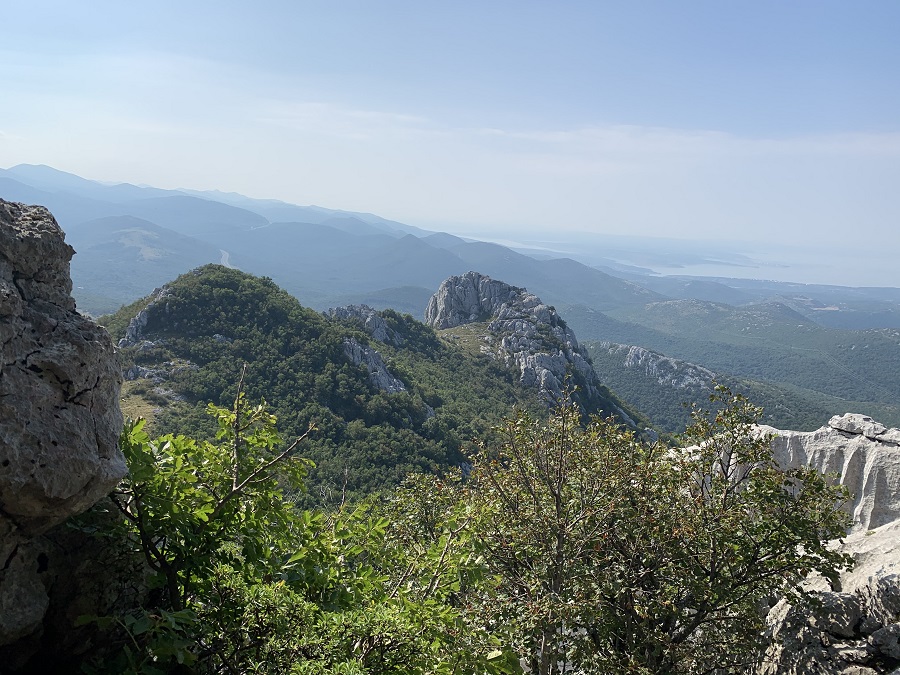
Photo: Beautiful view from the top of Kamenjak, Rijeka
7. What advice do you have for others thinking about making the move from the diaspora?
I would like to use this opportunity to encourage all people who live abroad and are considering returning back home, to do that!. Every person is valuable, and everyone who returns will surely contribute to the development of Croatia!
8. How do you think Croatia can better assist those who are looking to return to the Homeland?
When many people return, they will certainly be looking for a new job, and the HZZ should step in to help people find their way on the labor market. On the other hand, I think that the media should actively invite people to return and report on good and successful stories in Croatia. This will create a positive climate in society.
****
Thanks, Stipe, and enjoy your time in Croatia.
You can follow the TCN Croatian Returnees series here.
If you would like to contribute your returnee story, please contact This email address is being protected from spambots. You need JavaScript enabled to view it. Subject Returnees
You can subscribe to the Paul Bradbury Croatia Expert YouTube channel here.
****
What is it like to live in Croatia? An expat for 20 years, you can follow my series, 20 Ways Croatia Changed Me in 20 Years, starting at the beginning - Business and Dalmatia.
Follow Paul Bradbury on LinkedIn.
Croatia, a Survival Kit for Foreigners is now available on Amazon in paperback and on Kindle.

Croatian Returnee Stories: Ian Paligoric, from Dublin to Split
February 18, 2023 - Whisper it quietly, but more and more people are relocating to Croatia from the diaspora. In a new TCN series, we meet them to find out how they are faring and what advice they have for others thinking of making the switch. Next up is Ian Paligoric, who moved back from Dublin to sunny Split.
A 26-year-old who lived (studied and worked) in the UK, Spain and Ireland from 2015 to 2019 (returned right before the pandemic took over). A marketeer and creative writer at heart, born and raised in Split, but always thought that the grass was greener over the fence, blaming "the system" for all the woes. The experiences abroad allowed me to broaden my horizons (my, my, what a cliche, eh?) and discover that not all things are as they seem. Currently, I'm working as an Automation Marketing Specialist at Adriatic.hr and am a sole-trader (owner of an "obrt" doing marketing as well).
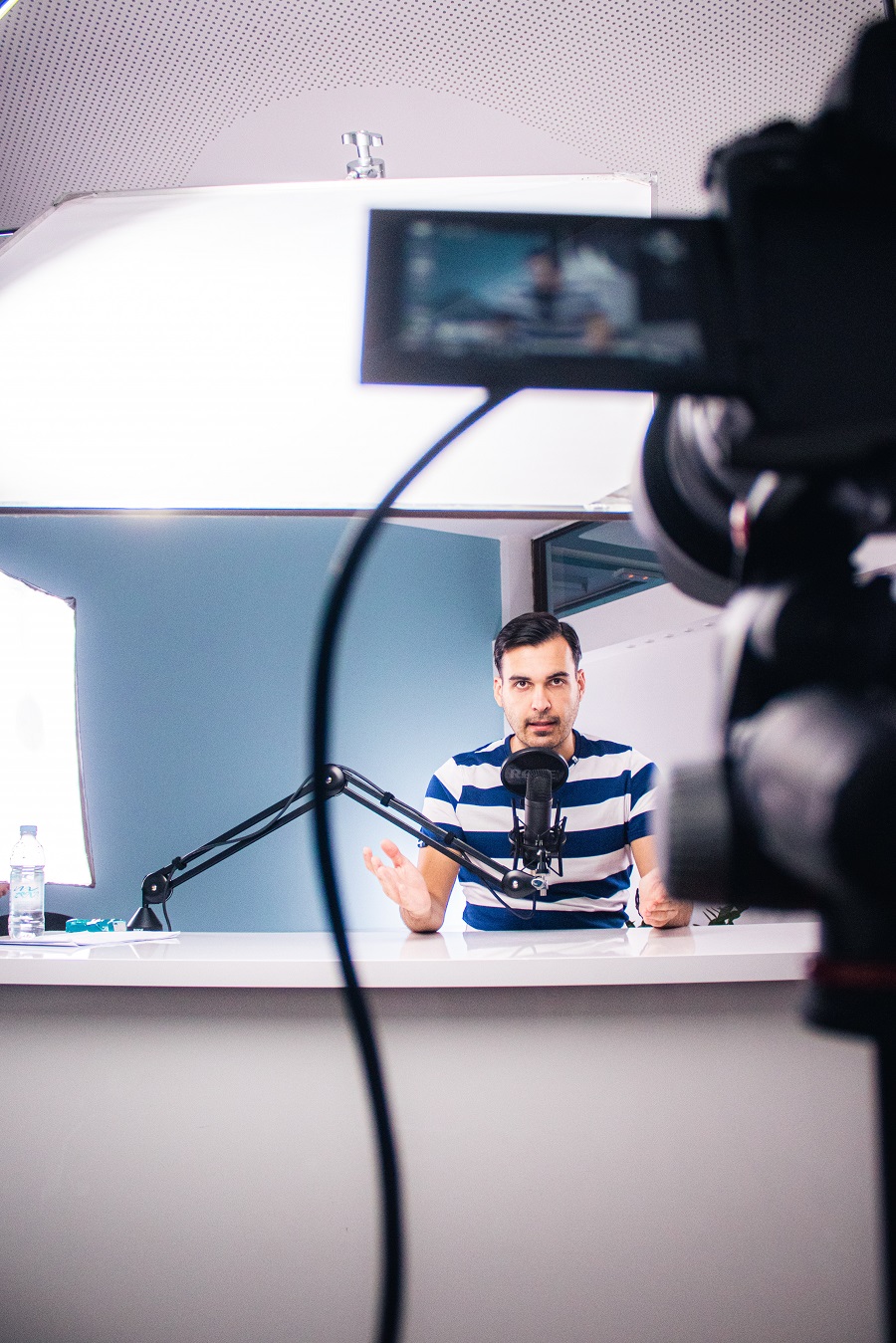
1. You made the switch to Croatia. Tell us a little about the decision process and how long it took for you to get on the plane?
It's 2019, and I'm working in Dublin, paying an exorbitant amount of money on rent and working in a dead-end corporate job where it's transparent to anyone but the psychopathic middle managerial class that everyone is unhappy, the job is a sinecure, and there's no way to rise up the ranks without sucking up to the higher-ups. Also, for a young man, working in a "top 10 consulting firm in the world" is actually a waste of time. The meme is real. Anyway, I was unhappy. At the time, I just thought it was because Dublin didn't sit well with me, having moved there from the UK, so I went back to England. It didn't scratch that itch, and I realised for all its faults, (spoiler alert), Croatia isn't necessarily bad, and that the lifestyle is, I dare say, superior. I do miss a great many things about those countries, and I cherish the memories I made there, but I'm happier as it is now.

(Photo Josip Svalina DUMP)
2. What did your family and community back home think of your decision at the time?
Family? Greatly disappointed. They didn't understand that the nature of my work would eventually allow me to work remotely, which I tried to tell them. Not only that, but it was they who encouraged me the most to make the move, as they thought that I'd succeed more in life if I was abroad; in retrospect, it's from them that I might have had such a negative perception of Croatia. Anyway, it's 2023, and they still haven't come to terms with my return. Truth be said, they still didn't come to terms with me having only a bachelor's degree and saying that pursuing further education is a waste of time considering that, in my experience, the work market is oriented more towards those with skills and work-experience. As for friends and the local community, they were... Ambivalent, to say the most. Before I left, they kept saying "it's better out there"; when I returned, they said: "no place like home."

3. Where did you get your information about the realities of Croatia prior to coming?
I was still connected with my friends who were studying and working all over Croatia, and it's from them that I knew what was happening (also, I've read the news as well, for what is was worth). When I shared my experiences, including how at times I felt unsafe walking the streets of Dublin or any English town, even during the day, they couldn't believe me. "You're a tall guy, what the hell do you have to worry about?" was their common reaction. They didn't get it, and having some close calls even with my friends, that's when my realisation that the grass isn't greener over the fence. I mean, the house I lived in in Derby (England) back in 2018 was burgled — the burglars got away with loads of expensive equipment. We had the tracking on, but even with their location, the police said it was a low-priority case and that they wouldn't pursue it. It was a major blow, and the first time my disillusionment became clear.
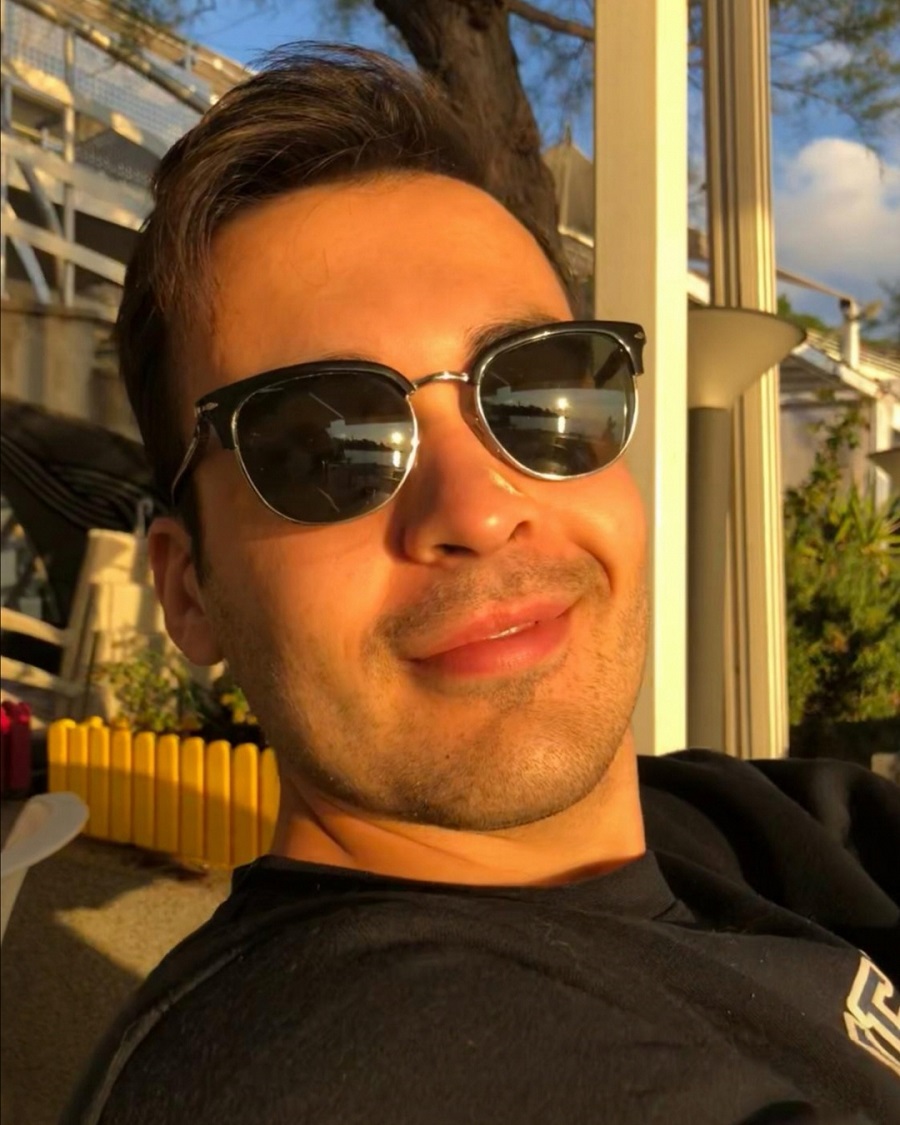
4. What were you most nervous about making the switch? What was your biggest fear, and how was the reality of what you found?
I was still in junior positions when it came to work and as such, I didn't have the option to work remotely. That meant working for Croatian employers in Split where marketing isn't as developed as in Zagreb or the UK & Ireland. Despite being extremely nervous about finding a job in my field and growing in one niche, I still made the switch. It was a difficult journey, especially with the epidemic happening in the meantime, but hey, I think I'm doing well for myself so far.
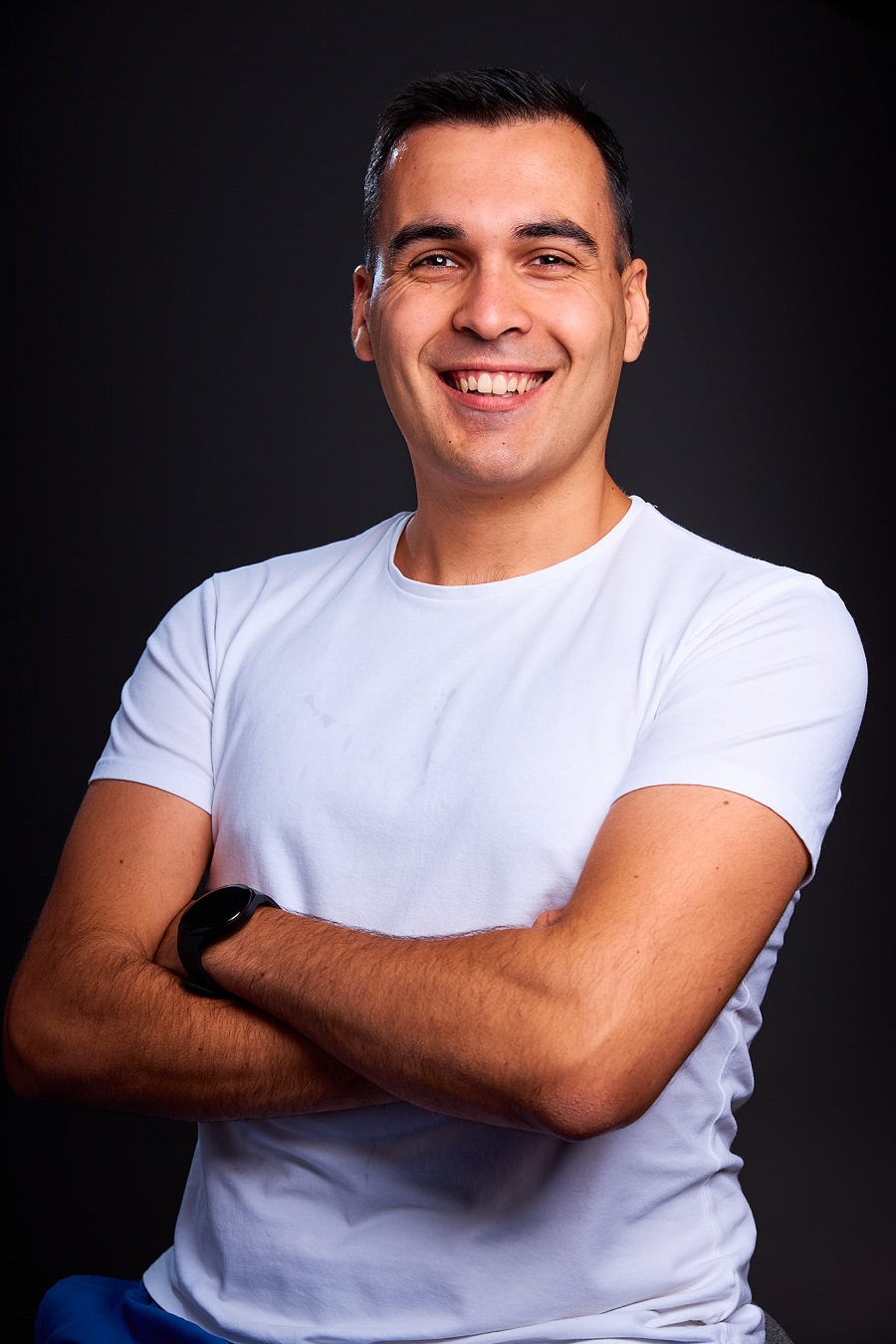
(Photo credit DUMP)
5. Think back to the time before you arrived. What were your perceptions about Croatia and how were they different from the reality you encountered?
Well, when I left Croatia, I had a relatively negative outlook on absolutely every aspect of life here (except the weather). Having returned, I truly became optimistic about its growth and the possibilities it will open for skilled young people. It's got a long way to go, its property market is a mess and the salaries are still barely catching up, but having returned, I truly began to appreciate the safety Croatia offers and the way of life here. The people themselves seem happier. To sum it up, I was well aware of all the things as before, just the appreciation for them changed.
6. You are still here, so obviously the pros outweigh the cons. Tell us about some of the things that you love about being in Croatia, as well as some of the things you don't like.
I'm a marketeer. As my skills and experience grow, my opportunities widen as well. My full-time employment is with Adriatic.hr where I've been given the opportunity to truly explore the niche area of marketing in which I'm interested in, and it's that kind of work I was actually afraid I wouldn't be able to find once I returned. Also, the relative proximity of everything is truly wonderful. Split is a walkable city. Except for Zagreb and perhaps Rijeka, I'd say in most towns you can get from one end to the other in half an hour on foot. Nonetheless, being employed in the tourism industry, it's a tad ironic that I dislike the wild tourism going on here (especially with the coast). It's unplanned, unstructured and I think there's a lot of room for structured growth here (we all know whose responsibility it is as well). The property market is too expensive for the common people. That, and obviously the bureaucracy should be better, but hey, with things moving slowly to e-Građani, life is becoming easier (I opened my obrt fully online after all).
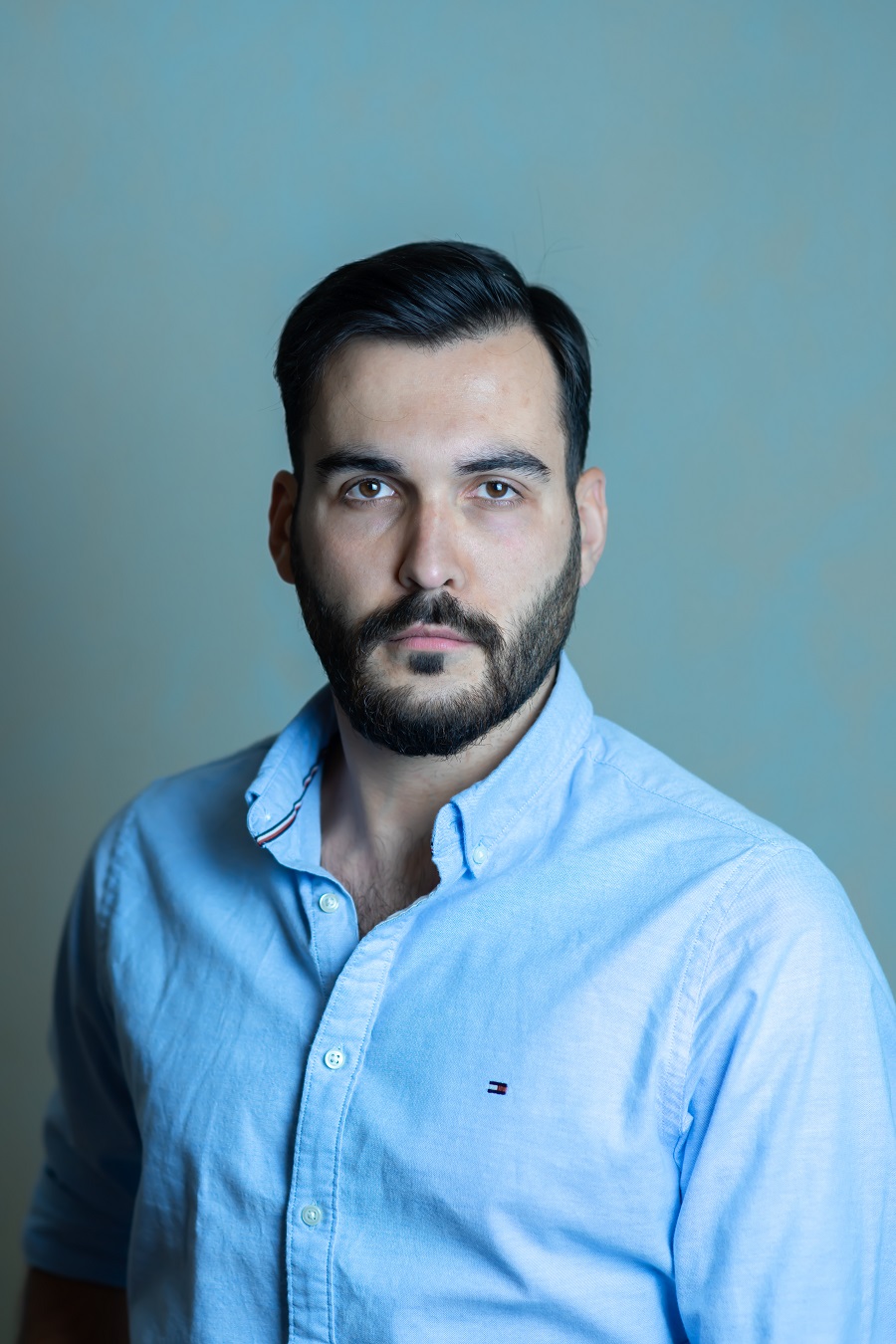
(Photo credit Ivan Capin)
7. What advice do you have for others thinking about making the move from the diaspora?
If you've got a remote job, then you shouldn't worry much. Just make sure you read everything with regards to the bureaucracy (you know, getting papers and visas if need be), and make sure your landlord won't kick you out during the summer season if you're somewhere on the coast.
8. How do you think Croatia can better assist those who are looking to return to the Homeland?
Honestly? Optimise the bureaucracy and make the processes simpler. "A gde je pečat" meme should become a distant memory. If our government wanted to, they have really nice examples set across Western Europe on how it should be set up.
****
Thanks, Ian, and enjoy your time in Croatia.
You can follow the TCN Croatian Returnees series here.
If you would like to contribute your returnee story, please contact This email address is being protected from spambots. You need JavaScript enabled to view it. Subject Returnees
You can subscribe to the Paul Bradbury Croatia Expert YouTube channel here.
****
What is it like to live in Croatia? An expat for 20 years, you can follow my series, 20 Ways Croatia Changed Me in 20 Years, starting at the beginning - Business and Dalmatia.
Follow Paul Bradbury on LinkedIn.
Croatia, a Survival Kit for Foreigners is now available on Amazon in paperback and on Kindle.

Return from Germany: Croatian Returnee Starts Up Business in Slavonia
January the 31st, 2023 - While we seem to hear little else about Croatia's demographic crisis than people abandoning parts of Croatia, particularly the east, to head off elsewhere in Western Europe in search of work, the opposite is also true. One Croatian returnee has moved home from Germany, bringing an innovative business idea with him - to Slavonia.
As Poslovni Dnevnik/VL/Branimir Bradaric writes, for a great many years now, Slavonia was the place from which people emigrated to other parts of Croatia or abroad and never returned. However, there are already an increasing number of cases where people have returned to their rural towns or villages and started a business of their own.
An excellent example of precisely this is the Zivkovic family, who after seven years of living and working in Germany, decided to return home to Vinkovci and start a business there. Jasmina and Petar opened their business, into which they transferred their rich experience gained from working in Germany.
In Germany, Croatian returnee Petar Zivkovic worked in precision welding at Siemens plants, and now he has started a business in Vinkovci manufacturing steel structures and industrial furniture. In starting the business, he also used 170,000 kuna in government grants, and he was given space at a preferential price in the Vinkovac Business Incubator.
"The conditions were certainly the main trigger for our return, although we'd been dreaming about it for some time. I also saw that there's a need for this kind of work and craftsmanship here. There's a lot of interest in industrial furniture, so there is no shortage of work. I took advantage of the government grants, bought the necessary equipment and combined all of that with my experience and knowledge. I'm very satisfied with my decision,'' stated Petar Zivkovic.
He is currently the only employee in his trade, but he says that given the volume of work and needs in the future, there will certainly be a need for expansion and the employment of new people. He has equipped his business premises with high quality products, so, among other things, he also owns a locksmith's 3D table, which is currently the only one of its kind in all of Croatia.
Meanwhile, his wife Jasmina opened her own business in Vinkovci, and at the end of February, the Vinkovci Business Incubator will celebrate three years of existence. With 12 offices and 5 production spaces now filled, more space is being sought, especially when it comes to production capacities. The director of the Vinkovci Technology Park, Josip Gilja, said that they started filling the incubators at the beginning of the coronavirus pandemic, but also that regardless of the problems which followed as a result of that unprecedented public health crisis, they still managed to fill all of their units.
"Today it's completely full. So far, 24 companies have passed through our premises, and they currently employ 40 people. Over the last three years alone, about a dozen companies have "outgrown" the Incubator, they've increased the scope of their work and their number of employees and have gone their separate ways. And that's our goal," said Gilja.
Croatian returnee Petar Zivkovic's workshop was also visited by the mayor of Vinkovci, Ivan Bosancic/
"These people have returned home and started businesses here and I hope that this will become a pattern that will encourage everyone who wants to return at some point, to do so, and to bring experience with them to create more business opportunities in Vinkovci,'' said Bosancic.
There is a great need for business spaces, and since the Incubator is full, the design and completion of the Zaluzje Zone will begin at some point during the year.
"The new zone spanning 130 hectares will be aimed at entrepreneurs, we want to have bigger companies operating here. We expect that other returnees will also bring their experiences with them home to Vinkovci, and hopefully also their salaries," said Bosancic.
For more, make sure to check out our business section.
Croatian Returnee Stories: Paula Pintaric, From Amsterdam to Koprivnica
January 3, 2023 - Whisper it quietly, but more and more people are relocating to Croatia from the diaspora. In a new TCN series, we meet them to find out how they are faring and what advice they have for others thinking of making the switch. Next up is Paula Pintaric, who moved back from Amsterdam to sunny Koprivnica.
Hi! My name is Paula. I am a 30-year-old product designer born in Croatia who decided to move abroad in search for a better life just to find out that life in Croatia is pretty damn amazing. :)
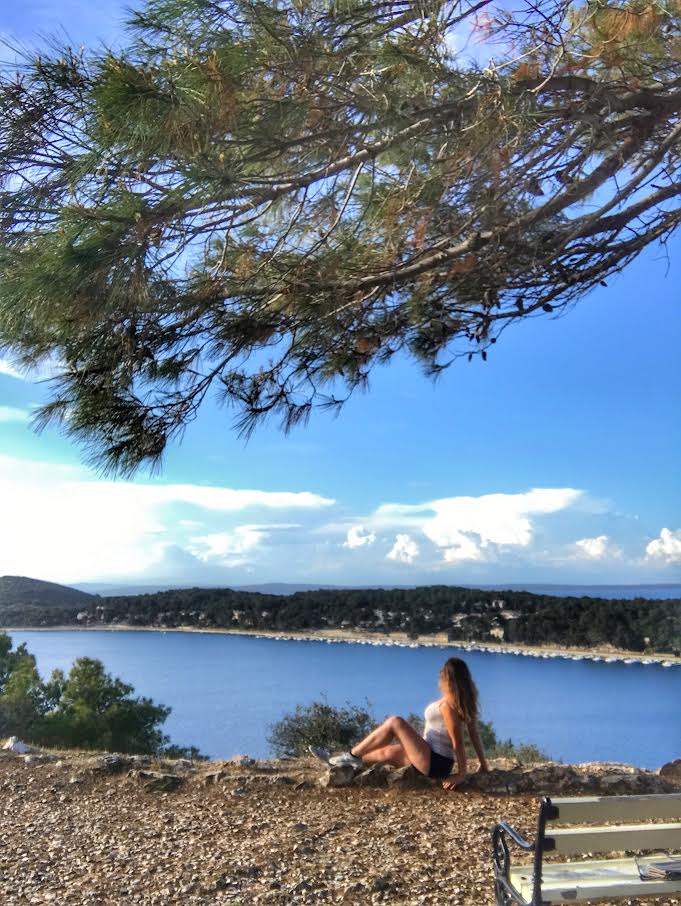
1. You made the switch to Croatia. Tell us a little about the decision process and how long it took for you to get on the plane.
Being pretty disappointed with Croatia, I moved to Amsterdam right after finishing my faculty. I lived there for around 4,5 years - I spent a lot of time exploring the country, traveling, dancing, going to parties, and hanging out with friends. I quite enjoyed it - it was a valuable experience for me. When Covid hit, Croatia opened up quite quickly in comparison to the Netherlands, so I used the opportunity to spend some time with my family and friends back in Croatia while working remotely. I was quickly reminded of the warmth of Croatian people, endless coffees, and a much easier tempo of living. After a few months, I flew back to Amsterdam, but I didn’t feel anymore that I want to live there. I kept thinking of great memories created back in Croatia, so pretty quickly after that, I found a job back in Croatia and moved. It all happened in a few weeks - I applied for a job, got it, went back to pack my stuff, and said bye to Amsterdam!
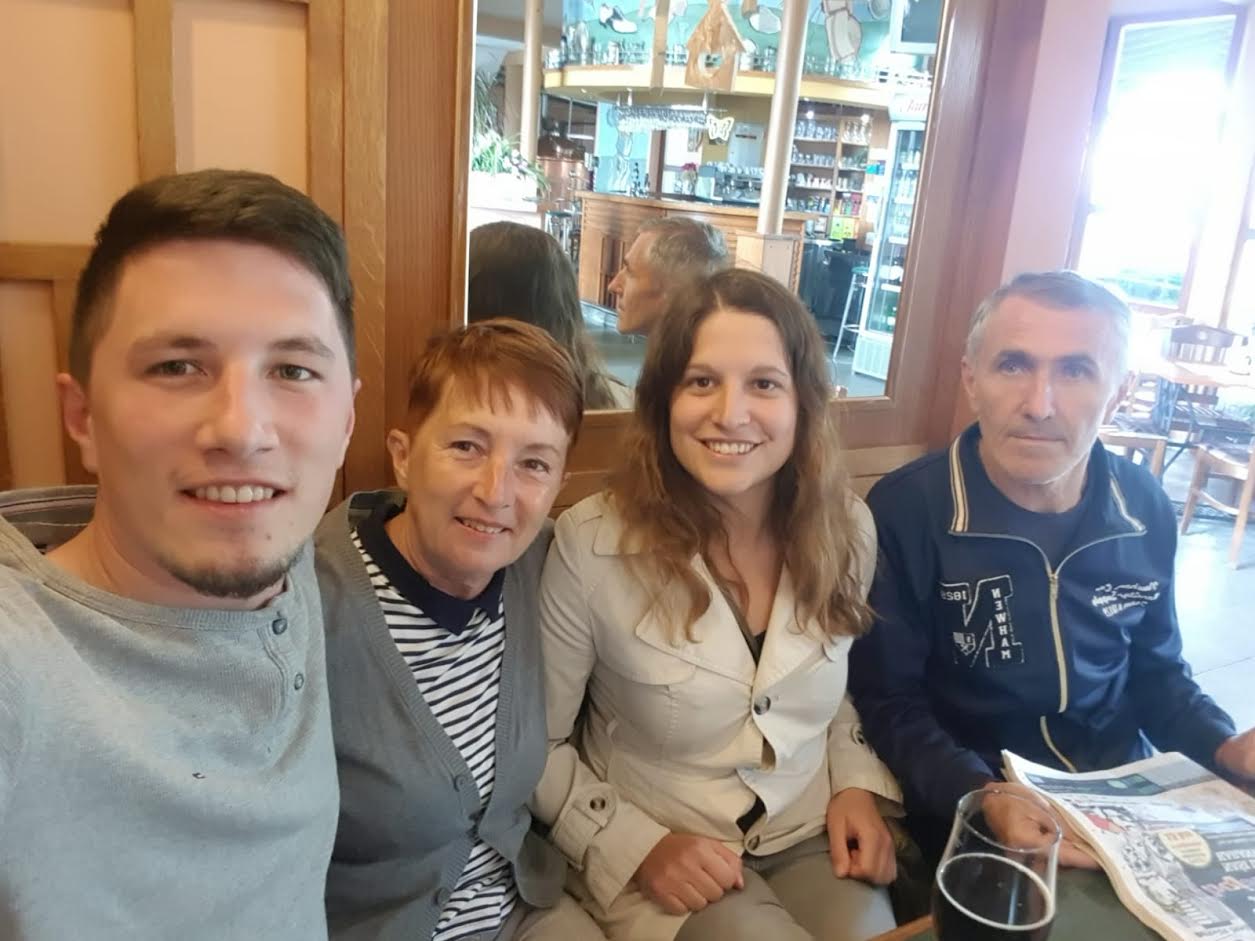
2. What did your family and community back home think of your decision at the time?
My parents were in disbelief for a few months, but I felt quite supported by my friends and family in Croatia, even though most of them were surprised by my decision. I still quite often get asked WHY would I move back to Croatia after living in Amsterdam. I usually say my time there was amazing, but I wouldn’t repeat it.
3. Think back to the time before you arrived. What were your perceptions about Croatia, and how were they different from the reality you encountered?
I lived in Croatia until I was 24, so I was aware of most of the realities and the things people in Croatia usually complain about. By living abroad, my perspective changed quite a bit, and I saw my country in a completely different light when I was moving back. I feel there is this culture of collective dissatisfaction that is quite strong in Croatia - western countries are often idolized, and we often take for granted the beautiful way of living we have. We’re forgetting that we’re quite connected to each other; we easily open up, spend a lot of time hanging out, and at the end of the day, this is priceless to me :)
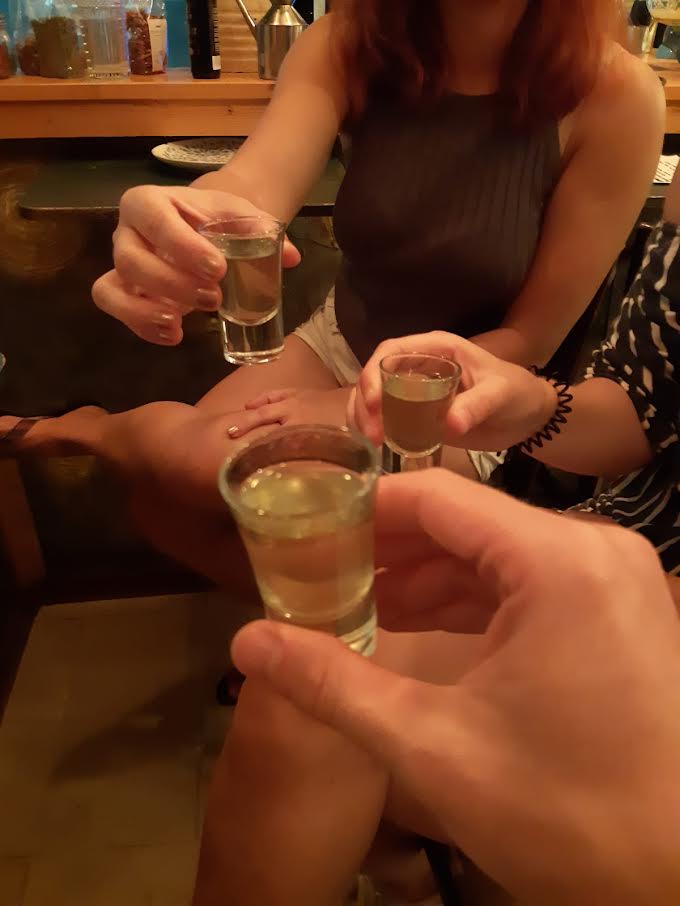
4. What were you most nervous about making the switch? What was your biggest fear, and how was the reality of what you found?
I didn’t really have any fears about coming back. I was actually pleasantly surprised because I got a feeling a lot of things progressed over the 4 years I was away. I was a bit worried about the bureaucracy and paperwork I need to do, but people working in the tax office actually helped me a lot, so everything went smoothly.
5. You are still here, so obviously, the pros outweigh the cons. Tell us about some of the things that you love about being in Croatia, as well as some of the things you don't like.
I love the way of living - endless coffees, hanging outs, pretty much everything about the community, better work/life balance, and a slower pace of living. Next to that, we really have beautiful nature, a great climate, food, and a lot of sunshine. I even love a bit of the Balkan craziness that comes with living here. I think this is a country with a lot of potential, and I would love if we could see it that way and start putting more effort as individuals in order to make it better economically. I don’t like that we see the current economical state here as the sole responsibility of a few people/government. I think we all have a say in it, but we need to stop complaining and do something about it.
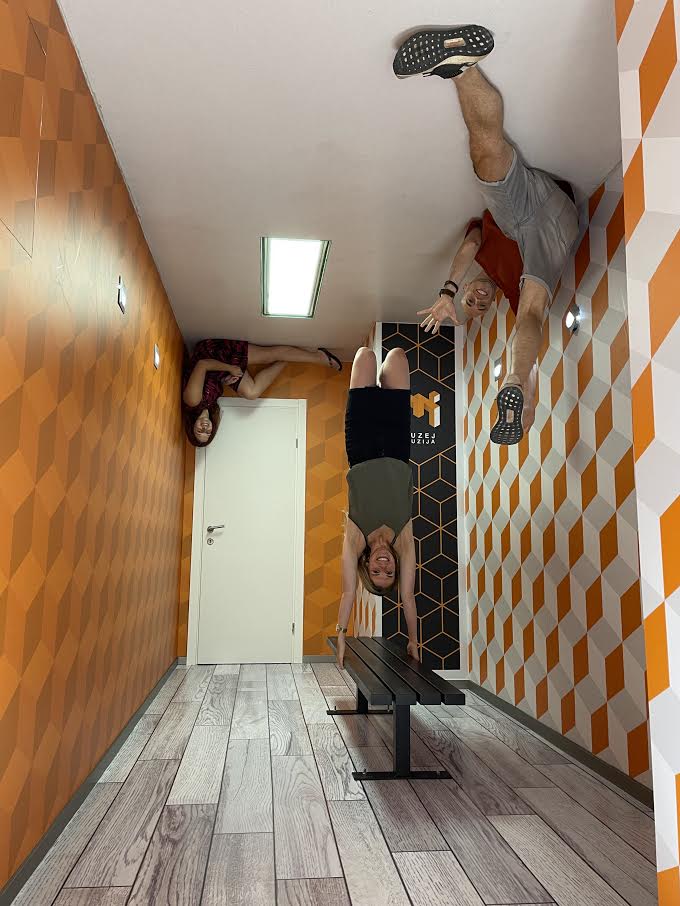
6. What advice do you have for others thinking about making a move from the diaspora?
I think the key to a painless move is patience and gathering as much information as possible. Everything can be solved, and people are quite willing to help out, even when it comes to complicated bureaucracy stuff. After you cross that hurdle, there is a lovely country full of possibilities on the other side. :)
7. How do you think Croatia can better assist those who are looking to return to the Homeland?
I didn’t need much assistance, so it’s difficult for me to say how it could have been done better. I’m not sure what it would look like if I grew up in another country or made a permanent move to the Netherlands for a longer period of time. Coming back after up to 5 years of living abroad is quite painless.
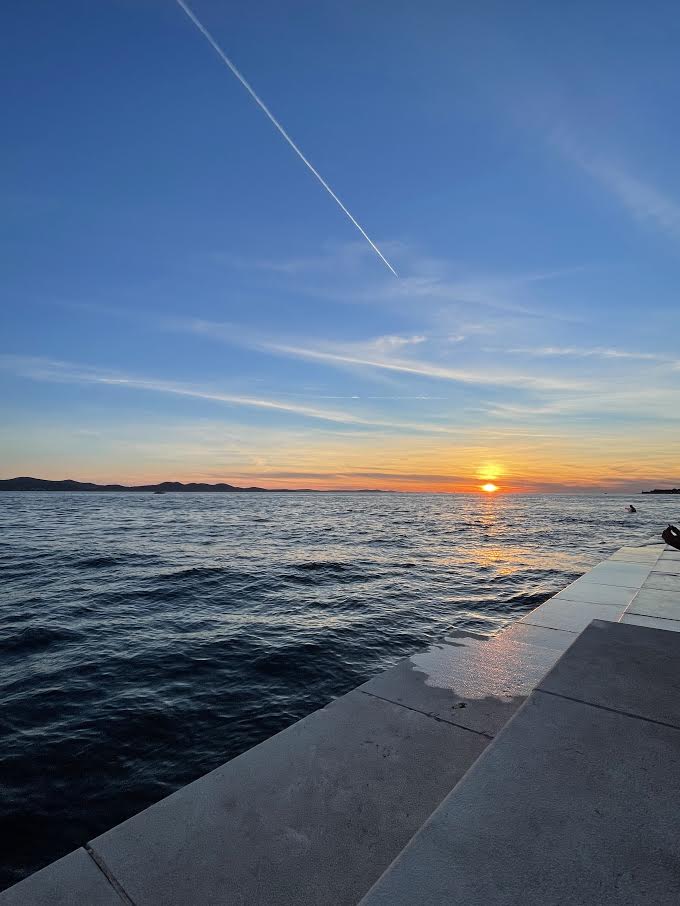
****
Thanks, Paula, and enjoy your time in Croatia.
You can follow the TCN Croatian Returnees series here.
If you would like to contribute your returnee story, please contact This email address is being protected from spambots. You need JavaScript enabled to view it. Subject Returnees
You can subscribe to the Paul Bradbury Croatia Expert YouTube channel here.
****
What is it like to live in Croatia? An expat for 20 years, you can follow my series, 20 Ways Croatia Changed Me in 20 Years, starting at the beginning - Business and Dalmatia.
Follow Paul Bradbury on LinkedIn.
Croatia, a Survival Kit for Foreigners is now available on Amazon in paperback and on Kindle.

Croatian Returnee Stories: Tonci Petric, from Stuttgart to Zagreb
November 17, 2022 - Whisper it quietly, but more and more people are relocating to Croatia from the diaspora. In a new TCN series, we meet them to find out how they are faring and what advice they have for others thinking of making the switch. Next up is Tonci Petric, who moved from Stuttgart to Zagreb.
Hi! My name is Tonči Petrić. I am a returnee from Germany. I was born in Stuttgart, the capital of the automotive industry in Germany and the headquarters of Mercedes-Benz and Porsche. Originally, I am from the island of Hvar, where my roots and my family came from. I have now been living in my new home in Zagreb fo 6 years. I am working as a journalist, blogger and news anchor for the national broadcasting company HRT, presenting international news in the German language. In my free time, I produce the podcast Green Deal Hrvatska.
My motto is: “Fill your life with adventure, not things. Have stories to tell, not stuff to show.”
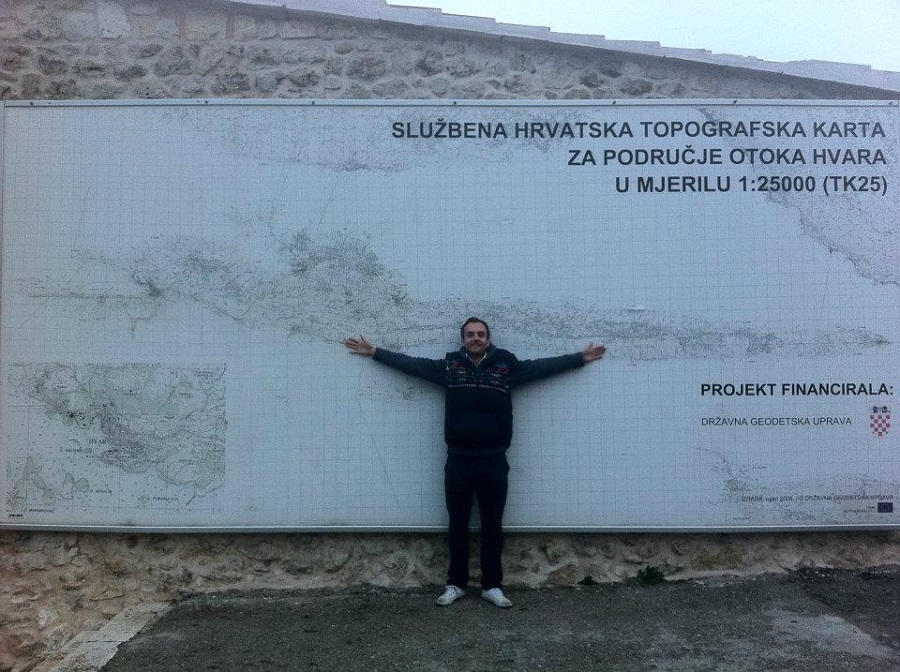
1. You made the switch to Croatia. Tell us a little about the decision process and how long it took for you to get on the plane.
It took me quite a long time to take the plunge and move to Croatia, although I've always wanted to live in Croatia. This decision-making process took place in stages (see below). I was already considering moving to Croatia after high school, but then I said to myself that I would like to complete my university education in Germany. After my bachelor's degree, I did internships in Germany and Croatia. After that, I decided to finish my studies in Germany.
At the same time, I also wanted to see the world after my studies. So, I went to New Zealand and Australia for half a year, and I travelled to other countries in the region. After HRT offered me an interesting job vacancy, I said to myself; I'll try Croatia now. There is never a perfect time for such kind of decision, but you have to act according to your own gut feeling.
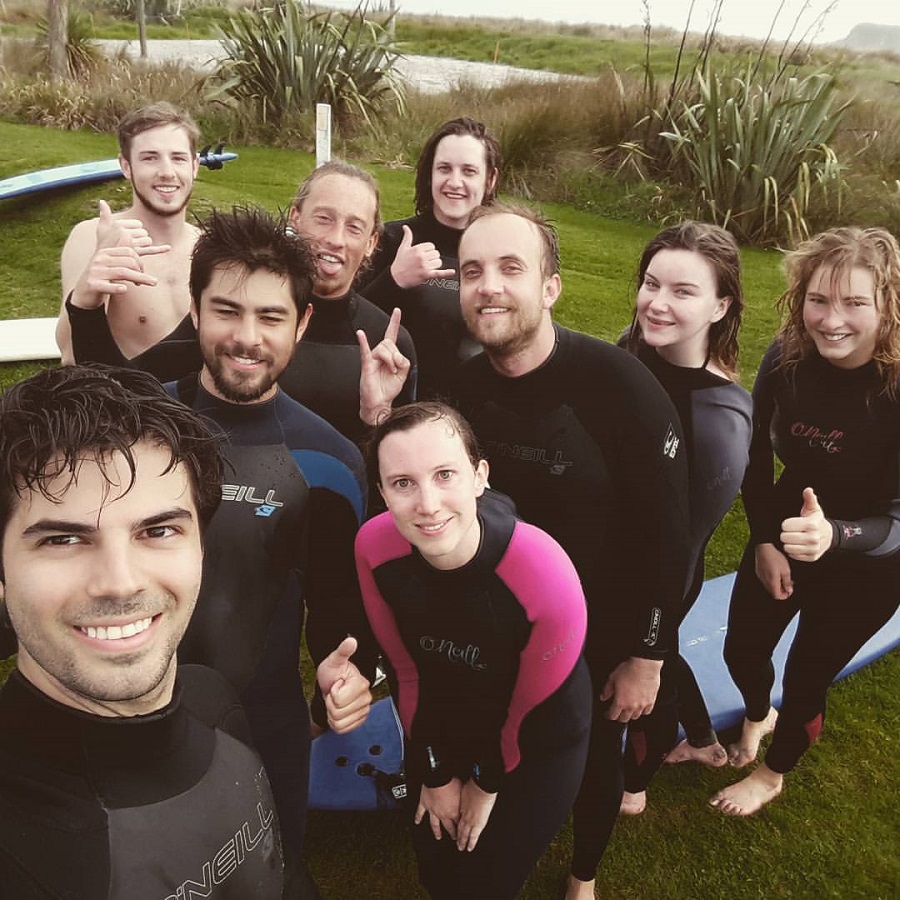
2. What did your family and community back home think of your decision at the time?
I think they supported me. Nobody was against my decision. They had known that I somehow always wanted to go back to Croatia. So, I think they were not so surprised by my decision. I think a lot of my friends or people who know me could understand my decision and see me somewhere else, but not in Stuttgart or Germany.

3. Where did you get your information about the realities of Croatia prior to coming?
I took part in n European pilot project called „ENAIP „between Croatia and Germany, where I was used to learning „Business-Croatian“, and I did a one-month internship in Zagreb. This gave me my first real experiences and ideas of life in Croatia. A few years later, I got a one-year scholarship from the Croatian government for the "CROATICUM" program, and I could improve my Croatian language skills at the Faculty of Philosophy in Zagreb but also catch more contacts and experience in Croatia. After this one year, I did a second internship in Zagreb. I worked for several months for the Croatian-German chamber of commerce and gain more professional experience in Croatia.
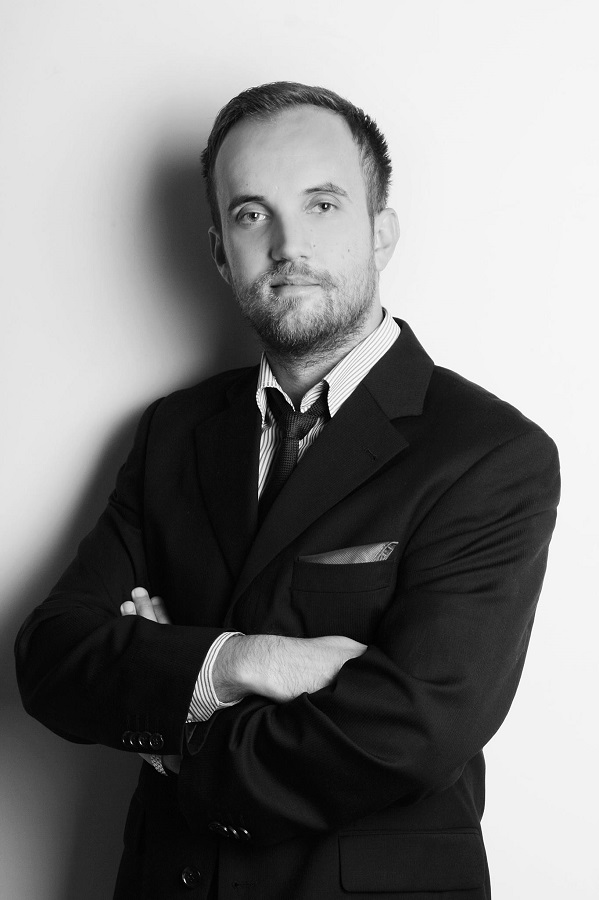
4. What were you most nervous about making the switch? What was your biggest fear, and what was the reality of what you found?
Would I find a proper job in my job field? Would I be happy with the salary, and could I survive financially? What are the possibilities later if I would like to change my career maybe? The more you are proactive, entrepreneurial, flexible or creative the more you will be successful and happy in Croatia.

5. Think back to the time before you arrived. What were your perceptions about Croatia, and how were they different from the reality you encountered?
Time before I arrived: Nice lifestyle in Croatia, being home, sunny and warm. Nice people, in many things not well-developed and corrupt but also high potential. Uncertainty in the matter of finding a proper and good job and having a regular good income
The reality today: more flexible and possibilities for myself than I thought - I can live in Zagreb as well as in Hvar. It's possible to find a good job in Croatia - you have only to be more proactive and entrepreneurial. I have got more of a sense of freedom and satisfaction as well as that I think that I really do what I love. Higher life quality than I thought.
6. You are still here, so obviously, the pros outweigh the cons. Tell us about some of the things that you love about being in Croatia, as well as some of the things you don't like.
I appreciate the feeling of being really at home in my country, surrounded by a similar mentality and people like yourself.
I love to go for Coffee whenever and wherever I want with friends to hang around and communicate with people or go alone and read newspapers (nobody will look at you like a stranger for that!)
What I also appreciate is the fact that everything is close and reachable for me in Croatia: The sea, the mountains, and the interior are not so far from Zagreb or other European capitals, and I can do my work as a journalist but also can go for a couple of days to Hvar to pick some olives for example.
From a German perspective, everything is far away. In Germany, I always had the feeling that I was like a bird in a gold cage. I didn't miss anything, but everything was over-restricted and less possible. In Croatia, meanwhile, I am feeling like a bird flying in freedom.
The point I really don't like is the passiveness of the people in Croatia. Things in Croatia can be better if we struggle for it or try to change it or show our dissatisfaction as citizens than just sitting in coffee bars and complaining and doing nothing.
Another negative thing is the bureaucracy in Croatia, or I would better say the unmotivated and incompetent people who are working in administrative departments or agencies. You have to deal with them, knowing that it will be frustrating, and in the end, you have to do their job.
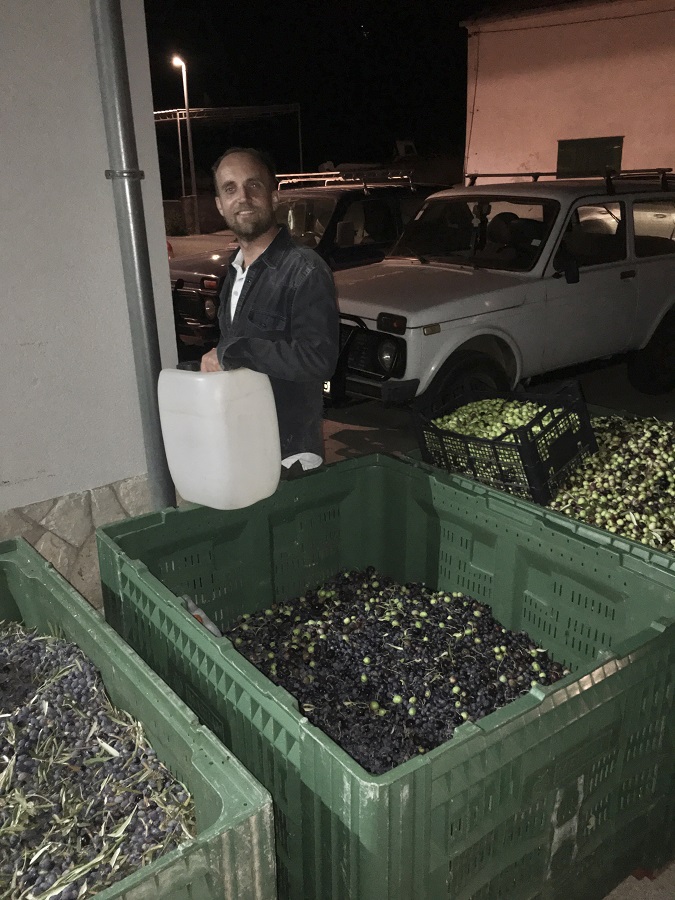
7. What advice do you have for others thinking about making a move from the diaspora?
Be open and flexible. Be aware that you maybe will not work in your specific field and that you were used to working in your host country. But in my opinion, Croatia offers a lot of potentials where everybody could find a niche for himself. If you know German, this is a big plus in Croatia. It is useful in each segment of the job market in Croatia.
Try to inform yourself before you go to live in Croatia. At best, try to get your information on the ground, try to contact people in Croatia and go for a coffee with them, Be socially able and spread out your network and connection. Go for a coffee, go for a coffee, go for a coffee...
In my view, everybody with a good school education and knowledge of the German language can find a proper job in Zagreb. You have to be more proactive and have initiative and rely less on the state and society.
With new internet technologies, you have far more possibilities to work on something and earn a salary. You can live nowadays as a digital nomad. Find an employer other than the internet in Germany, but live your life in Croatia.
And the end, no risk – no fun. Just try it. If it’s not worked out for you, you can later say I tried at least, and you will not regret it.
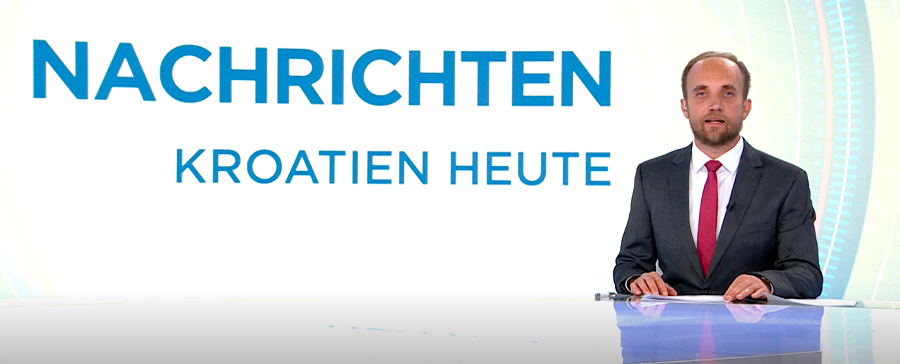
8. How do you think Croatia can better assist those who are looking to return to the Homeland?
Provide better and adequate information about Croatia and the job opportunities for somebody who is willing to return to the homeland. Reduce uncertainty. Try to make this move for them easier and more comfortable. More practical information, for example: How to deal with health insurance in Croatia?
The CROATiCUM institute should not only be a language centre, but it should also be an information point with practical advice and help for returnees as well. As it could be a cultural centre in the world for promoting Croatian culture in general, similar to Goethe Institute in Germany.
Maybe get a special adviser from the city of Zagreb or from some Croatian ministry to give assistance to returnees.
****
Thanks, Tonci, and good luck with https://glashrvatske.hrt.hr/de/blog/ruckkehr-nach-kroatien
https://greendealhr.podbean.eu/
https://glashrvatske.hrt.hr/de
****
You can follow the TCN Croatian Returnees series here.
****
What is it like to live in Croatia? An expat for 20 years, you can follow my series, 20 Ways Croatia Changed Me in 20 Years, starting at the beginning - Business and Dalmatia.
Follow Paul Bradbury on LinkedIn.
Croatia, a Survival Kit for Foreigners is now available on Amazon in paperback and on Kindle.

Croatian Returnee Stories: Jakelina Listes, from Vancouver to Split
November 1, 2022 - Whisper it quietly, but more and more people are relocating to Croatia from the diaspora. In a new TCN series, we meet them to find out how they are faring and what advice they have for others thinking of making the switch. Next up is Jakelina Listes, who moved from Vancouver CA to Split.
Jakelina Listes originally born and raised in Split, Croatia (back in the day, 1971, part of former Yugoslavia). I immigrated to Canada in 2000, came back to Croatia for about a year and a half, and then back to Canada in 2003. I am currently still living in the British Columbia province of Canada, on Vancouver Island’s main city of Victoria, and I am in the process of getting ready for my return to Croatia. I have a degree in social work, and I am currently employed working for the federal government and have a small business making upcycled fashion and jewellery that I do on the side (also on Instagam). I lived in several provinces in Canada and have been involved in the local non-profit sector focusing on immigrants and other inter-cultural issues.
1. You made the switch to Croatia. Tell us a little about the decision process and how long it took for you to get on the plane.
I suppose the idea of me returning back to Croatia was present in my mind forever, as I was homesick for a long time and did not quite find my place in Canada. Despite being here for 20 years, and having a decent life ( in economic terms) and valuable experiences, there was a big part of my life that was missing. It would take a novel to list here all the nuances that make someone's life great and that, when not fulfilled, leaves a gnawing feeling of missing out, longing, and emptiness.
My husband, who is Canadian, and I have been talking for a few years now about the possibility of buying some property in Croatia so that we can have a place to retire, thinking it will take years to accomplish this as we are in our early fifties. As time went by, my desire to return back was growing, and so did the search for real estate in Split.
In my case, the important part of this decision is the fact that Canadian society has changed a lot since I came here, especially during the pandemic years. It has gradually become a society that emphasizes many worldviews that are not compatible with my own values. I think I am simply too tired of trying to find my place here, and I told myself, hey you spent years here and gave it a good shot, but it is time to move on.
The final decision was made this September after my return from a 4-month-long visit to Split.
During that time, I bought a property in Kastela and settled in instantly, feeling this is it, it feels like home home. Coming back to Canada was hard, especially after being there for months, and something shifted in my mind, and I asked myself, why wait for retirement, why don’t we do what we want sooner while we are still relatively young.
So, here we are, selling our house in Canada and preparing to leave in a few months
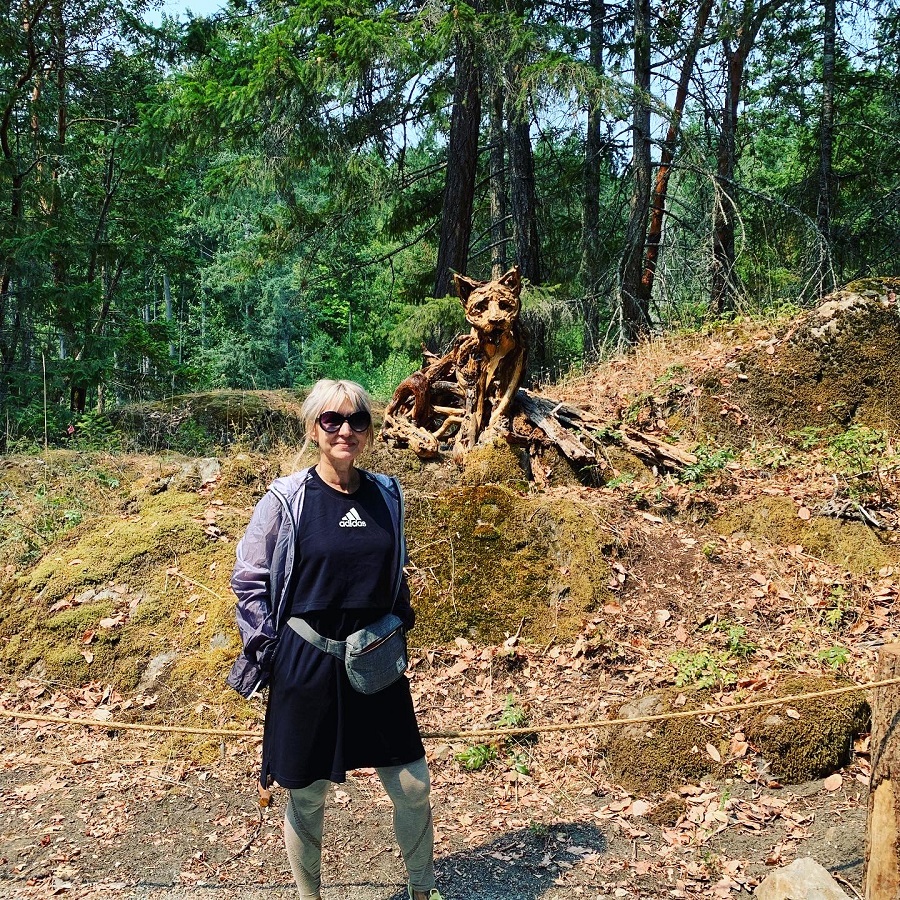
2. What did your family and community back home think of your decision at the time?
Many people here in Canada are a bit surprised by our decision but ultimately see it as something most of them would like to do. Meaning, retire early, still have some good years to enjoy life, and fulfill some of the things we all put aside and never get to it, as life is not that long. My family and friends in Croatia are generally understanding why we want to do this, and are welcoming our return. There are some cautious remarks here and there in the sense that people in Croatia find it strange that my Canadian husband wants to move there just like that.
3. Where did you get your information about the realities of Croatia prior to coming?
As I am from Croatia and have been coming for a visit almost every year for the last 20 years, and I extensively follow what is happening in Croatia via media, social media, and talking to people, I am well aware of the Croatian reality. Unlike some people who were born and raised outside of Croatia and have not lived there, I don’t have illusions about the state of affairs there, and I know what to expect. In other words, the Croatian mentality is very familiar to me.
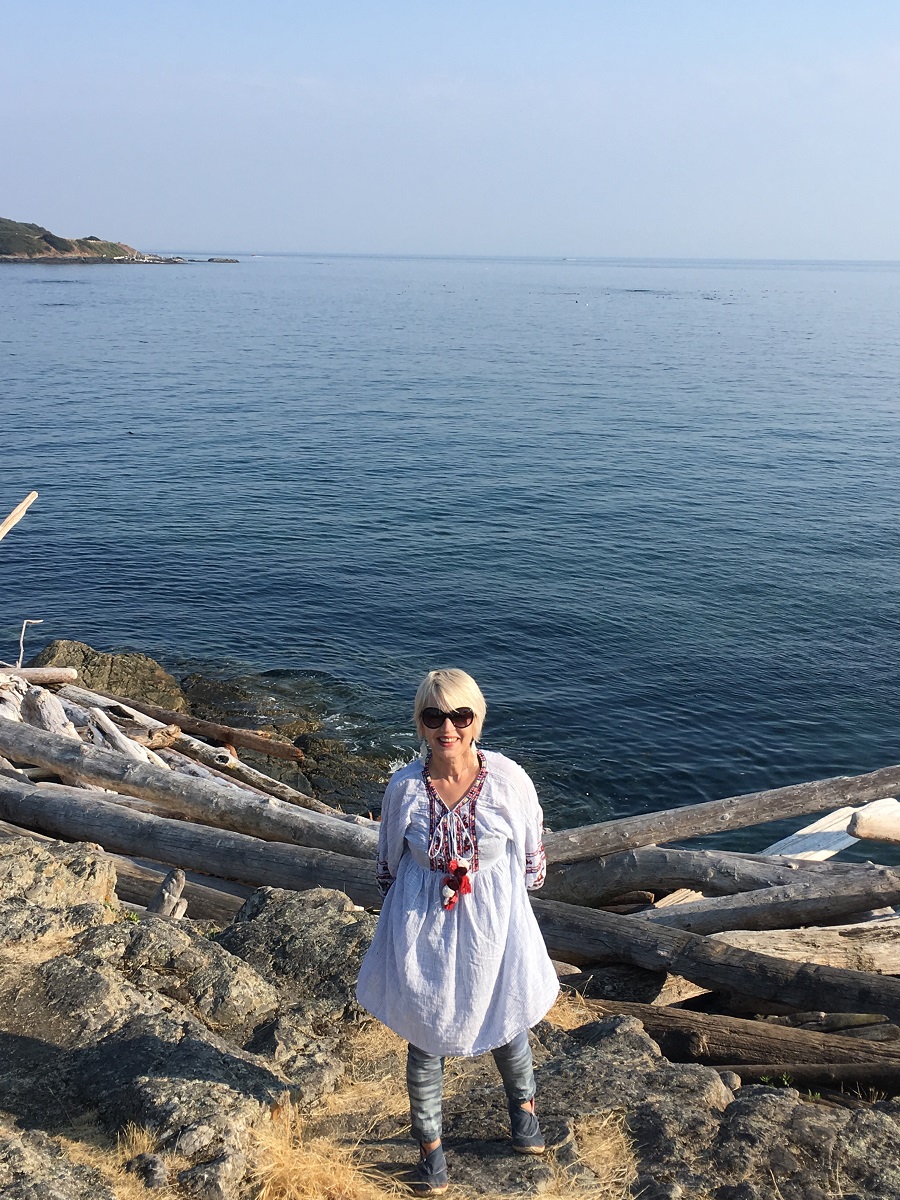
4. What were you most nervous about making the switch? What was your biggest fear, and what was the reality of what you found?
We are very excited actually. I anticipate we will have some headaches dealing with Croatian bureaucracy, but being employed by the biggest ministry in the Canadian government, I can testify that bureaucracy is terrible wherever you go. I have family and friends to help if thighs get stuck, so I don't really have a lot of concerns.
5. Think back to the time before you arrived. What were your perceptions about Croatia, and how were they different from the reality you encountered?
Living abroad for many years gives you a unique perspective on your own homeland. I don’t look at the Croatian reality only from the lenses of someone from there, but also from someone who is coming from quite a different socio-economic and political milieu. This can be very interesting at times and leads to a lot of comparisons where Croatia gets the advantage in certain key elements like, in my case, having family and friends, feeling of belonging, familiarity with the place and culture, mentality, habits, food, etc. On the other side, there are some areas that would benefit from some of the attitudes that are more prevalent in Canada.
At this stage in life, the Croatian lifestyle suits me better.
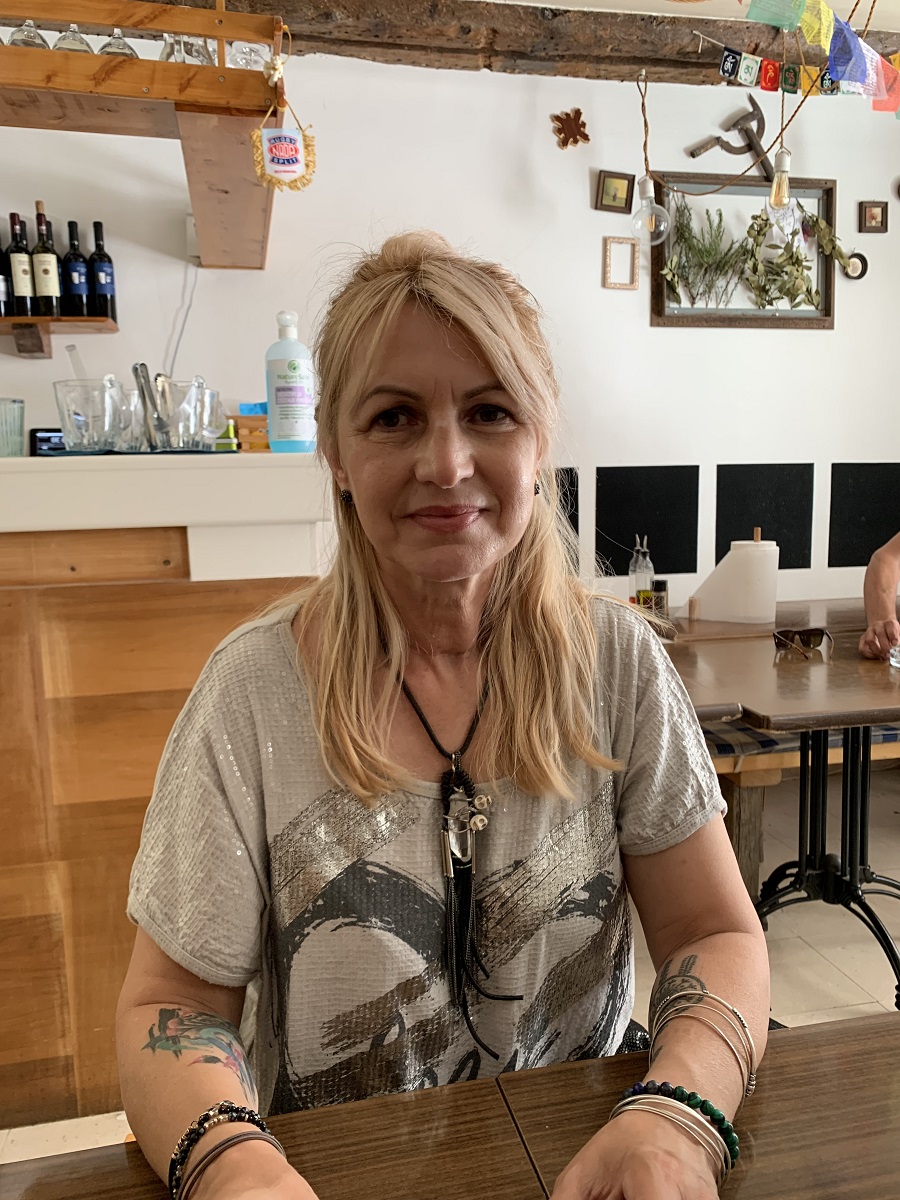
6. You are still here, so obviously, the pros outweigh the cons. Tell us about some of the things that you love about being in Croatia, as well as some of the things you don't like.
Croatia for people like me is very different than it would be for my husband or for those Croats born and raised outside of Croatia. I have a strong connection to my hometown and think it is a great place to live (even though, realistically there are a lot of things that are not great). For me, it is truly coming back home. I like that when I walk around Split, I have memories of places and people, I know its locations and history, and it means something. As I mentioned before, I know what to expect and how to go about it, which is what some other returnees who never lived in Croatia before often struggle with.
What I don’t like is what is wrong with many other parts of the world, incompetent and corrupt ruling class, exploitative economy, environmental degradation, and the overall decline in basic human decency. I also do not enjoy the chaotic tourism industry that Split succumbs to and the total lack of vision and planning for the city so that it can thrive for 12 months a year, not just in summer.
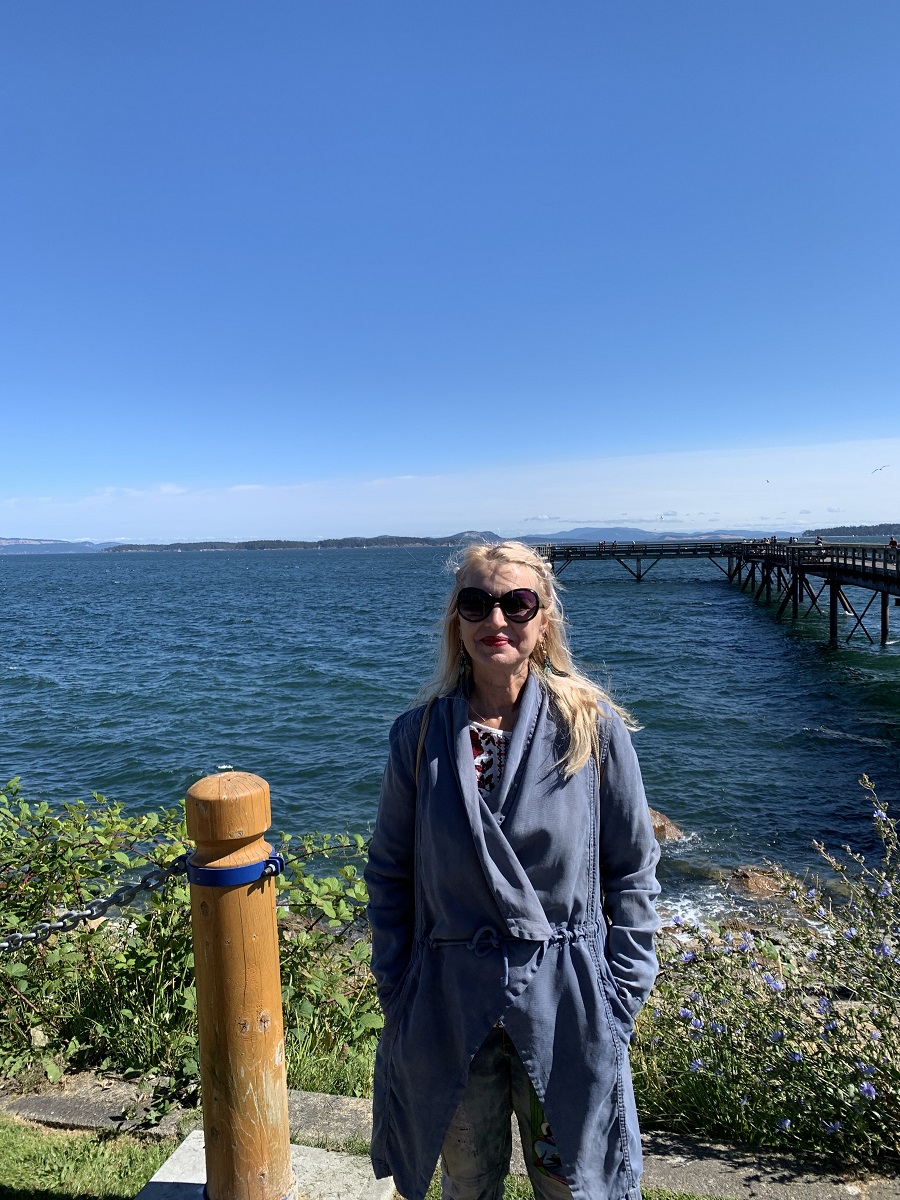
7. What advice do you have for others thinking about making a move from the diaspora?
To leave the expectations that things in Croatia are or are supposed to be the same or similar to wherever you are returning from. To remind yourself why you decided to move there in the first place, and set what your priorities are. To adapt to local culture and embrace it as that is the only way to adjust to a new reality and meet people and ultimately feel like it is a place you can call home.
8. How do you think Croatia can better assist those who are looking to return to the Homeland?
There is for sure a need for people to get more easily accessible information on what needs to be done for getting medical care, residency, driving licence, etc. Also, an agency or center that would serve immigrants to Croatia, regardless of where they come from, would be a logical move, as there are more foreigners coming to live and work in Croatia. I think tools such as Paul’s new book that speaks about just that- survival for foreigners in Croatia are also great assets. Another thing that any immigrant, even a returnee from the diaspora, can use is to observe people and their surroundings and be curious and ask, engage, show interest. That is a fantastic way to learn your way around a new culture. And let’s be honest, coming to Croatia from the diaspora is basically coming to a new culture.
****
Thanks, Jakelina, and good luck with stonethreadsjewellery.com
****
You can follow the TCN Croatian Returnees series here.
****
What is it like to live in Croatia? An expat for 20 years, you can follow my series, 20 Ways Croatia Changed Me in 20 Years, starting at the beginning - Business and Dalmatia.
Follow Paul Bradbury on LinkedIn.
Croatia, a Survival Kit for Foreigners is now available on Amazon in paperback and on Kindle.

Croatian Returnee Stories: Denis Vlahovac, from Vancouver CA to Daruvar
October 29, 2022 - Whisper it quietly, but more and more people are relocating to Croatia from the diaspora. In a new TCN series, we meet them to find out how they are faring and what advice they have for others thinking of making the switch. Next up is Denis Vlahovac, who moved from Vancouver CA to Daruvar.
My name is Denis Vlahovac, and I am a bar consultant and cocktail event manager. I own a company called Cocktail Empire that focuses on improving hospitality standards in Croatia through education and events. I promote the usage of locally grown products, connecting local producers with cafes and restaurants, and I am trying to implement new creative ways to use existing products in cocktails while lowering costs and making the business sustainable. I grew up in Daruvar, Croatia. After I finished University in Opatija in 2014, I moved to New York, and I lived abroad until the pandemic started in 2020. I visited 61 countries and lived in 5 countries.
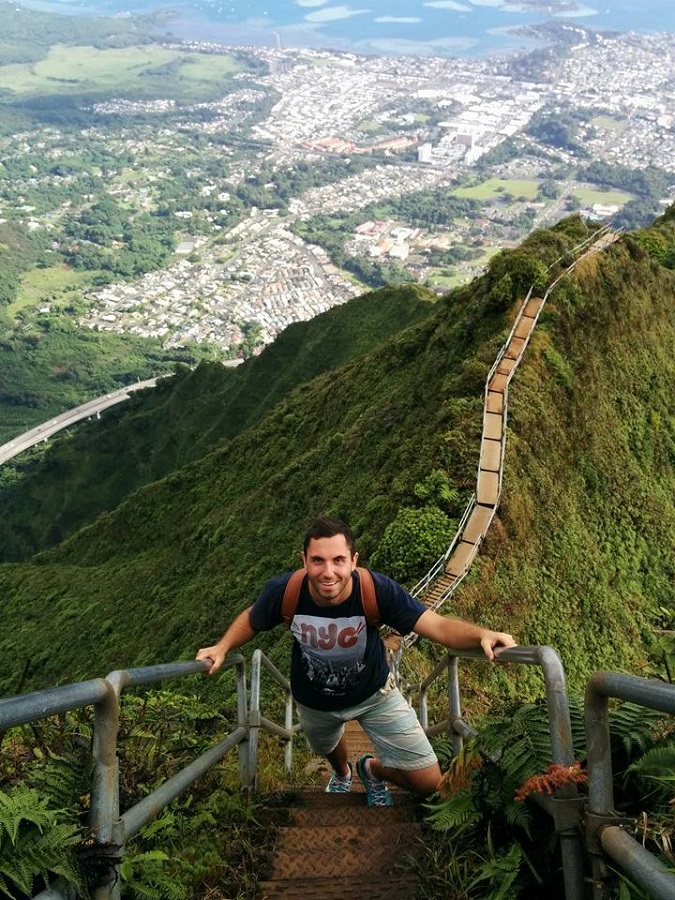
1. You made the switch to Croatia. Tell us a little about the decision process and how long it took for you to get on the plane.
Ever since I moved out of the country 8 years ago, I thought about what it would be like to actually go back to Croatia and work there. Did something change? Money was not the main reason I left (even though it was an important factor), but actually, the situation itself was with my university diploma, I actually had to know people to get a good job. Your skills didn’t matter much. When I moved out, I actually saw that if I worked hard, I could go places. And I worked hard and learned along the way. The decision to come back home was pretty much straightforward. I was forced to return to Croatia because of the pandemic. My Canadian visa expired, and I was unable to renew it. I barely managed to leave the country because I was on vacation in Alaska when it was decided that the border between Canada and the US was about to close the following day, so I rushed to the airport to return to Canada before it happened. The restaurant I worked at closed permanently the same week, so there was no other option but to go back to Croatia for, what I thought at that moment would be, six months.
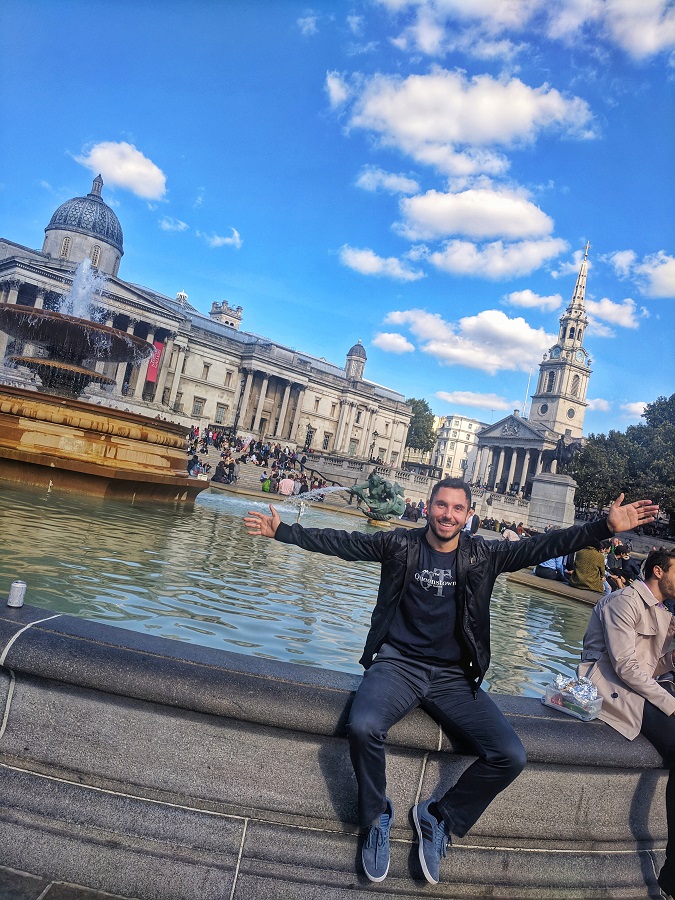
2. What did your family and community back home think of your decision at the time?
My family always wanted me to come back and to be closer to them, even though they supported me in my travels. They were always here for me when I needed them. I haven’t seen my parents or my friends back in Croatia for 2 or 3 years sometimes. When it was time to come back, neither they nor I knew it was going to be for good. And we all thought the pandemic was going to end in a couple of months and everything would be back to normal. The day of the flight, I had 2 flight cancellations and barely managed to get out of Vancouver to Montreal and from there to Brussels, only to realize that there was a huge earthquake in Zagreb that same morning. We managed to get there the same day, and my parents left a car for me at the airport, and I drove back home to Daruvar to self-isolate for 2 weeks.

3. Where did you get your information about the realities of Croatia prior to coming?
I was reading Croatian media wherever I lived in the world. Most of the time, I was grateful I didn’t live there. But when you start reading the news about the country you live in, you realize that the news is the same everywhere. In Croatia, there’s a problem in the past with previous regimes but so is in Canada or New Zealand.
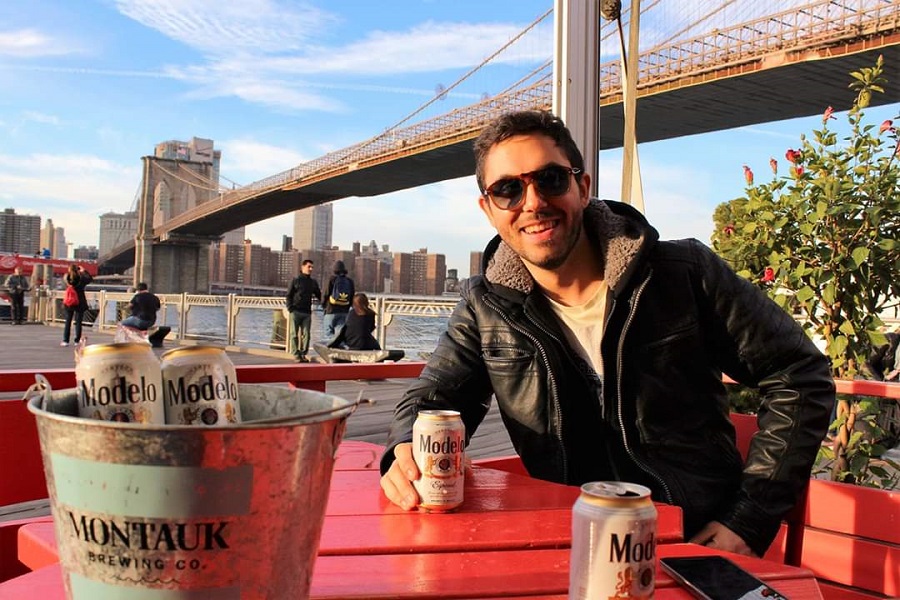
4. What were you most nervous about making the switch? What was your biggest fear, and what was the reality of what you found?
It was hard for me to think about Croatia when I made all the other places my home. I lived in New York for 3 years, and the hardest decision I made in my life was to leave New York. I had lots of friends and a great job. But I needed a change. I wanted to travel the world. At that time, I never imagined myself living back in Croatia. But things change, and people change. Now when I am in my thirties, I can see Croatia as a wonderful place to live in. And I try to hang out with people who think alike and really want to work on making this place even better.

5. Think back to the time before you arrived. What were your perceptions about Croatia, and how were they different from the reality you encountered?
I knew what Croatia was like in 2014, and I didn’t want to live there at that time. The people were great, but the situation was hard. I do not come from a wealthy family, nor do I live on the seaside where opportunities to get better-paying jobs are abundant. But after 6 years abroad, I started to think about Croatia more. I wondered if the situation has changed. After 6 months of being in Croatia in 2020. I realized that covid was not going to go away quickly, so I started looking for a job as a bartender. I thought salaries must be much higher now than they were in 2014. After a few job interviews, I was left speechless. The sheer disappointment I felt at that moment as I was walking away from a cocktail bar in Zagreb I just had an interview made me think about moving away again. But this time, it was impossible for me to leave. All my savings were melting away fast, and I had to think hard about what I wanted to do with my life. I saw the opportunity to start my own business and apply all the things I learned abroad to the Croatian hospitality scene in order to improve it. I decided to stay in Croatia for good this time.

6. You are still here, so obviously, the pros outweigh the cons. Tell us about some of the things that you love about being in Croatia, as well as some of the things you don't like.
What I love about Croatia is that it is really beautiful, people are easy-going, and it’s easy to make new friends there is a big potential for business growth, especially if you have something unique to offer to the market. Every part of Croatia has something unique to offer in regard to food and sights. It’s awesome to go to places like Baranja and Istria, Zagorje, and Dalmatia and experience great food and meet friendly people. I like the way of life here and being close to my family and friends. I do feel it is getting more and more westernized with a fast lifestyle and the constant run for the money, but it still has some of that chill vibe. Especially in smaller towns. What I don’t like is that it is a relatively small market, so unless you have something original or are extremely good at what you do, you will have a hard time succeeding. Another thing I find interesting is that Croatians always think of themselves as really hard-working, but I don’t see that in Croatia that much. Of course, there are hard-working people here, but not in the amount we like to tell ourselves. Bureaucracy is a constant problem, but it is getting better. The thing I feel is the most annoying in Croatia is that you need to know people to get good jobs and that people think and talk about other people's lives too much. Related to my love of traveling, what I hate in Croatia is the lack of railroad infrastructure and the lack of long-haul flights from Croatian airports. Especially in the winter.
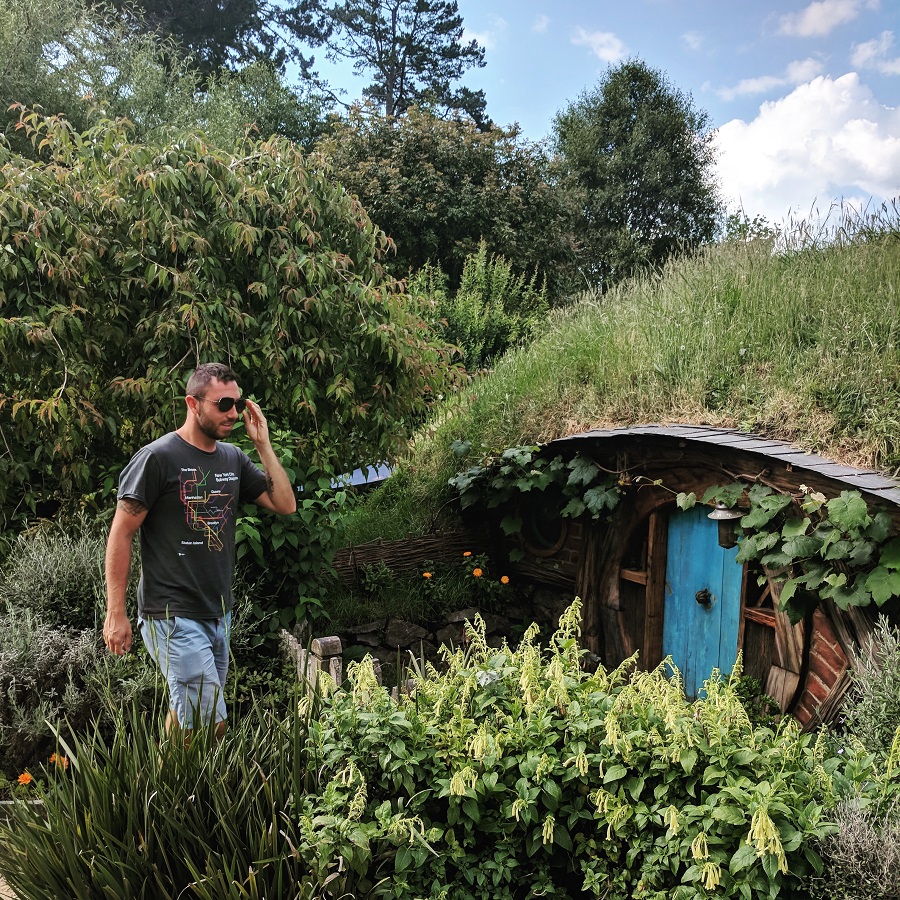
7. What advice do you have for others thinking about making a move from the diaspora?
If you need a relaxed lifestyle and are thinking about moving to a slower-paced country that has great food, good people, and a high potential for business growth, Croatia is an excellent choice. Especially if you are a high earner, you will find that Croatia has everything you need. You can go hiking, play different sports, enjoy the sun and visit 1000 islands, drink the finest wine, eat quality local food and hang out with friendly people. It is extremely safe and well-connected with the rest of Europe.
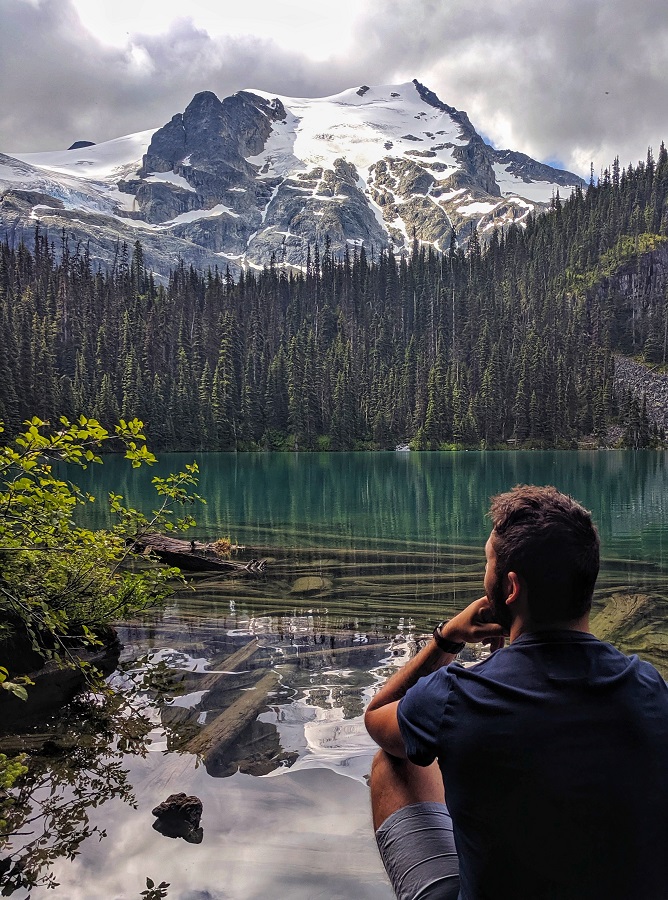
8. How do you think Croatia can better assist those who are looking to return to the Homeland?
I think the Croatian government missed the opportunity to keep Croatians that returned to Croatia during the pandemic in the country. Now it is hard for them to come back. I am one of the rare ones who decided to stay and build my life here. I think we should work on “stopping” the people from leaving Croatia permanently in the first place. It’s great for people to go abroad to study there or to get some work experience, and we should offer those people some benefits to come back to Croatia to use that knowledge to improve the local economy. Corruption is, unfortunately, still a big problem in Croatia, and we should all work together to get rid of it as much as possible. That is probably the main reason Croatians are leaving Croatia.
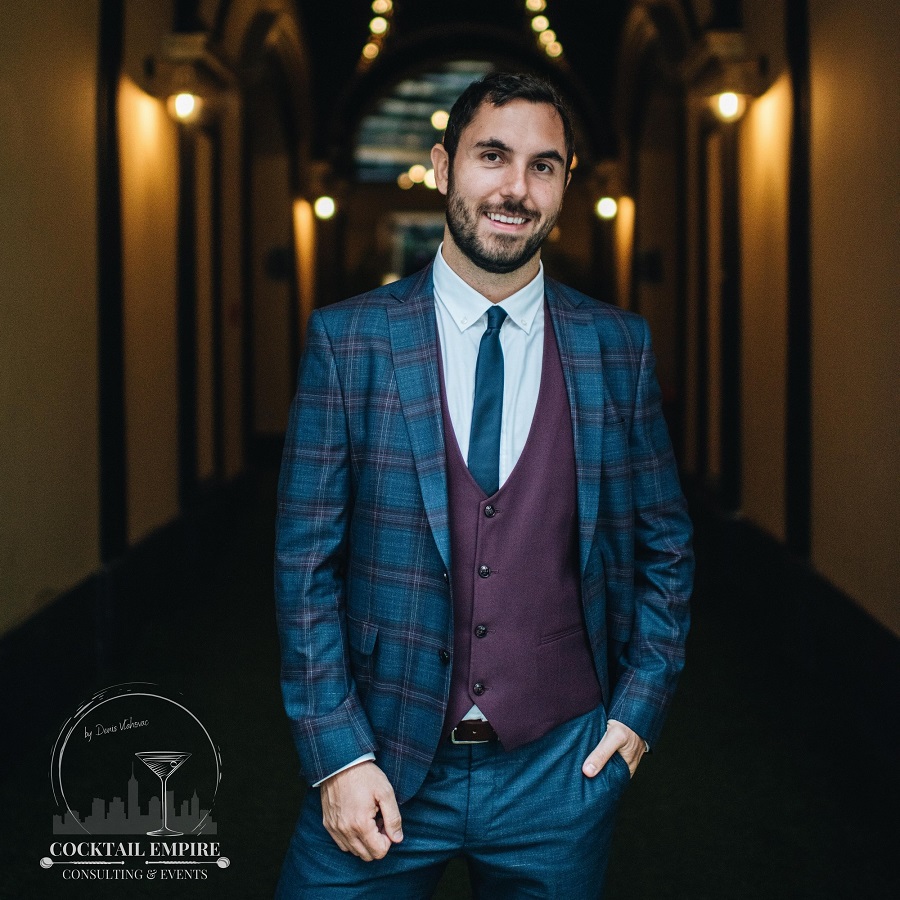
****
Thanks, Denis, and good luck with www.cocktailempire.hr
https://www.facebook.com/cocktailempireDV
https://www.instagram.com/cocktail.empire
https://www.instagram.com/denis.vlahovac
****
You can follow the TCN Croatian Returnees series here.
****
What is it like to live in Croatia? An expat for 20 years, you can follow my series, 20 Ways Croatia Changed Me in 20 Years, starting at the beginning - Business and Dalmatia.
Follow Paul Bradbury on LinkedIn.
Croatia, a Survival Kit for Foreigners is now available on Amazon in paperback and on Kindle.

Croatian Returnee Stories: Ida Hamer, from Northampton UK to Zagreb
October 19, 2022 - Whisper it quietly, but more and more people are relocating to Croatia from the diaspora. In a new TCN series, we meet them to find out how they are faring and what advice they have for others thinking of making the switch. Next up is Ida Hamer, who moved from Northampton UK to Zagreb.
Unlike most of the returnees in this new TCN series who lived abroad for decades, my journey as a foreigner was much shorter but extremely valuable to me. Today I’m a television reporter and a journalist – but almost 10 years ago, I was a girl with a dream to study abroad. I was born in the capital of Croatia, Zagreb. I had only just turned 19 when I finished high school and moved to the UK to study Multimedia Journalism at the University of Northampton. All by myself, without knowing a single person there, that “adventure” was exciting and frightening at the same time. The life experience I gained there is something I would never obtain or experienced if I had stayed in Croatia, and it is something I will always appreciate. However, after graduation, my heart said – it was time to get back home.
1. You made the switch to Croatia. Tell us a little about the decision process and how long it took for you to get on the plane.
When I decided to return home, it was also a time when many of my peers in Croatia decided to move to another country. So, my decision wasn’t quite popular and was surprising to many. It took me a bit of thinking whether “should I stay or should I go.” But when I graduated, the decision came naturally to me. I was ready to pack my UK experiences and memories in my luggage and start a new chapter at home.
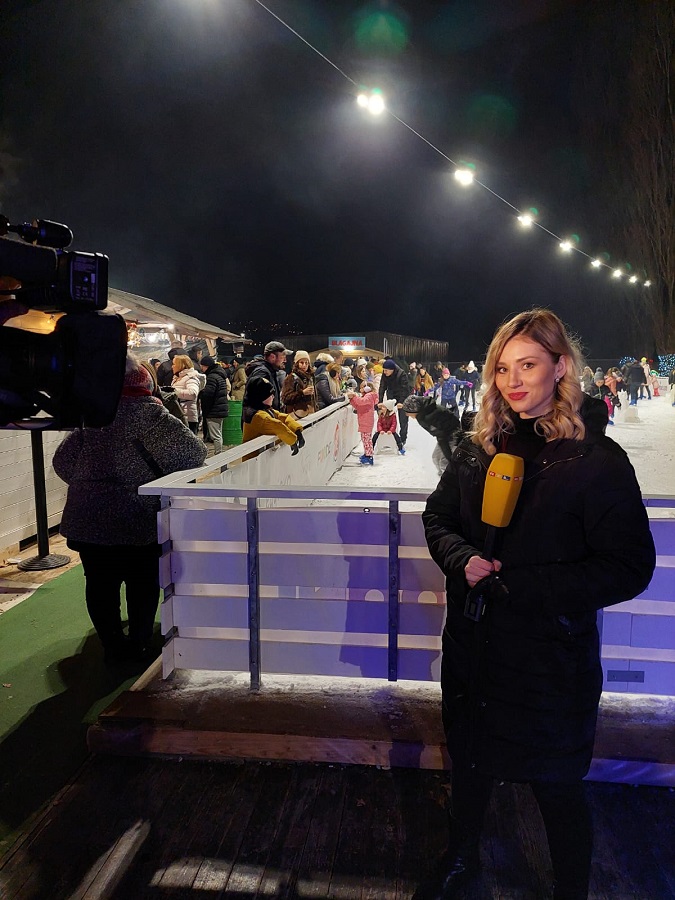
2. What did your family and community back home think of your decision at the time?
My family was supportive. They knew this decision was mine to make. However, there were those who were surprised. Some thought it was a great decision; some thought that I must be, well, crazy. Many expected I would continue my life overseas since I finished University abroad. And even though that seemed a bit discouraging, given the atmosphere in the country at the time, I did understand where this questioning was coming from.
3. Where did you get your information about the realities of Croatia prior to coming?
I knew mostly everything because I lived in Croatia prior to moving to the UK, however, now I saw things from a different perspective. I understood that some things at home might be a struggle, but I also felt that anything is possible for a person who is willing to work hard. When I was leaving Croatia, even as a teenager, I was frustrated with corruption, nepotism, bureaucracy, and, in general, the bad atmosphere in the country. But living in the UK also made me realize all the positives that Croatia has. I missed the sun and the seaside, Zagreb’s city center, coffee culture and our humor, and all those little things that make life here nice. So, when I moved back here, at first, I saw everything through rose-colored glasses, which also wasn’t good.

4. What were you most nervous about making the switch? What was your biggest fear, and what was the reality of what you found?
My biggest fear was – what if I ever regret moving back to Croatia? Up until now, I still haven’t.
5. Think back to the time before you arrived. What were your perceptions about Croatia, and how were they different from the reality you encountered?
At first, my perception was colored pink. Now, I look at everything much more realistically.
6. You are still here, so obviously, the pros outweigh the cons. Tell us about some of the things that you love about being in Croatia, as well as some of the things you don't like.
I love that people here socialize, spend time with each other, talk, and laugh. I appreciate that I feel safe on the streets of my city. I love the life I built for myself here since I returned. I like that I can be at the seaside in two hours if I wish and can also visit all the neighboring countries in a couple of hours too if I decide to make a quick weekend getaway. On the other hand, and like most young people here, I dislike nepotism and corruption. I dislike how slowly things are changing for the better around here. For example, population decline has been one of the hot topics here for many years now, yet we do not see a systematic effort to tackle this challenge. There is definitely not enough effort put into getting young people to stay here. And while the population is facing a decline, the number of people living in poverty is increasing. This is a sad reality for a state with so much potential.
7. What advice do you have for others thinking about making a move from the diaspora?
Connect with people online and talk! There are so many different pages where people who went through similar experiences will happily share it with others and answer all the questions.
8. How do you think Croatia can better assist those who are looking to return to the Homeland?
Firstly, I have to say I applaud all the people behind websites that are offering advice and resources to foreigners and the diaspora on how to live and work in Croatia. They are untangling many Croatian bureaucratic entanglements that are foreign not only to foreigners or the diaspora but also to Croatians who live here. These people are taking a lot of burden off the government, as people are finding the right answers on those pages rather than contacting and asking these questions the relevant government offices. However, I do hope that one day the Croatian government will have a similar page where all the resources will be in one place and where it will be clearly outlined what services the country provides and where. I really hope the government will make the bureaucratic procedures simpler and that most things will be able to be done digitally. Until that beautiful, sunny day happens, if moving to Croatia, arm yourself with patience and humor.
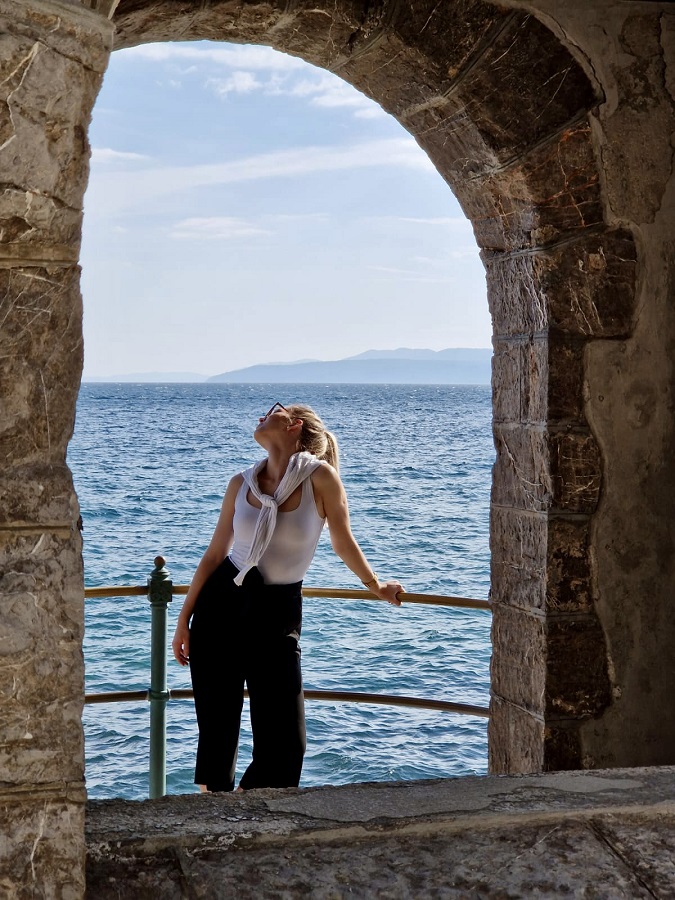
****
Thanks, Ida, and good luck with https://idahamer.com/
https://www.linkedin.com/in/ida-hamer-026461111/
****
You can follow the TCN Croatian Returnees series here.
****
What is it like to live in Croatia? An expat for 20 years, you can follow my series, 20 Ways Croatia Changed Me in 20 Years, starting at the beginning - Business and Dalmatia.
Follow Paul Bradbury on LinkedIn.
Croatia, a Survival Kit for Foreigners is now available on Amazon in paperback and on Kindle.



